
Catalog Advanced Search
-
Contains 3 Component(s) Includes a Live In-Person Event on 04/04/2025 at 7:45 AM (PDT)CE Credit available
April 4-6, 2025
#ACMT2025 | Annual Scientific Meeting
April 4-6, 2025
Fairmont Hotel, Vancouver CanadaThe 2025 ACMT Annual Scientific Meeting (#ACMT2025) will take place from April 4-6 at the Fairmont Hotel in Vancouver, Canada. This event offers a unique opportunity for medical toxicology specialists to gather, learn, and network. Attendees will be exposed to cutting-edge research through a variety of educational sessions, with featured tracks covering Environmental & Public Health, Research, Addiction Toxicology, Professional Development, and New Insights! The meeting will also provide rich social and networking opportunities with receptions, business meetings, and awards ceremonies. Participants will leave equipped to enhance clinical decision-making, stay updated on emerging toxins and therapies, and foster multidisciplinary collaboration in managing complex toxicology cases. Continuing Education credits for Physicians, Pharmacists, and Nurses available.
AACT Member Discount: AACT Members who are not already ACMT members, are eligible to receive a discounted registration rate. Just enter the following code at checkout to receive a $50 discount. Discount code: AACT2025
Learner Objectives
After attending the event, participants should be able to:
- Enhance clinical decision-making in the field of Medical Toxicology.
- Summarize knowledge of emerging toxins and novel therapies.
- Organize multidisciplinary collaboration in the management of complex medical toxicology cases.
Questions?
Please write to ACMT at events@acmt.net
Registration Rates
Registration includes:
- Access to the live in-person event on April 4-6, 2025
- Access to the on-demand recording for 90 days after the event
- Access to the speaker slides
- Continuing Education credits are available for purchase for an additional fee. Click here for more info.
ACMT Member Rates Early-Bird Expires: Feb 21, 2025
Regular Rate Begins: Feb 22, 2025
Member Tier I: Full, Affiliate, International, Emeritus$650 $750
Member Tier II: Fellows$450 $550
Member Tier III: Residents, International - Developing Country
$350$450
Member IV: Medical Students
$250$350 Non-Member Rates Early-Bird Expires: Feb 21, 2025
Regular Rate Begins: Feb 22, 2025
Non-member Tier I: Physicians, Pharmacists, Lawyers, "Other"
$950$1050
Non-member Tier II: Fellows, SPIs, Nurses, etc.
$650$750
Non-member Tier III: Educators & Emergency Responders
$550$650
Non-member IV: Residents & Students
$450$550 Early-Bird Rate
Early-bird rates expire at midnight on FEBRUARY 21, 2025. Fees increase to the Regular Rate after this date, no exceptions.
Membership Discounts
ACMT Members: ACMT Members receive a discounted rate. Interested in becoming an ACMT Member? Contact our Membership Team at membership@acmt.net. Learn more at: www.acmt.net/membership
AACT Member Discount: AACT Members who are not already ACMT members, are eligible to receive a discounted registration rate. Just enter the following code at checkout to receive a $50 discount. Discount code: AACT2025
Refunds and Cancellations
Event registration cancellations received on or before February 17, 2025 (2/17/25) will receive a full refund less a 8% processing fee. Cancellations received between February 18, 2025 and March 18, 2025 (2/18/25-3/18/25) will receive a 50% refund. Cancellations made on or after March 19, 2025 (3/19/25) will not receive a refund. All Continuing Education registrations will be refunded in full less an 8% processing fee regardless of date.
All cancellation requests must be made in writing and emailed to: events@acmt.net. No telephone cancellations will be accepted. A refund that results from a cancellation or change to your registration will be returned to the original payer and in the original method of payment.
Pending review, limited exceptions will be made based on need and circumstance and must be submitted in writing to events@acmt.net. Because each exception must undergo a review and approval process, we ask in advance for your patience.
Questions?
For any questions, please email us at events@acmt.net.
Agenda
Click on the link below to access the most up-to-date agenda. All times listed in local, Pacific time.

Kim Aldy, DO, MS, MBA
ToxIC Program Director
American College of Medical Toxicology
Dr. Aldy initially joined the Toxicology Investigators Consortium with the American College of Medical Toxicology as the first ToxIC intern, where she led a vaping initiative around the country. In her new position with ToxIC, Dr. Aldy is responsible for the day to day management of the ToxIC program, staff and site coordination, helping with research projects and publications, and acquiring support for ToxIC through grants and related activities.
Dr. Aldy earned her medical degree at the University of North Texas Health Science Center in Fort Worth, Texas. During her medical school training, she concurrently applied and enrolled in an MBA program with concentration in Health Management at the University of North Texas which she attained shortly after starting residency. She completed an emergency medicine residency at Western Michigan University in Kalamazoo, Michigan. She attended her Medical Toxicology Fellowship at University of Texas at Southwestern Medical Center in Dallas, Texas.
Dr. Aldy has an academic and clinical affiliation within the departments of Emergency Medicine and Medical Toxicology at the Baylor University Medical Center in Dallas, Texas.
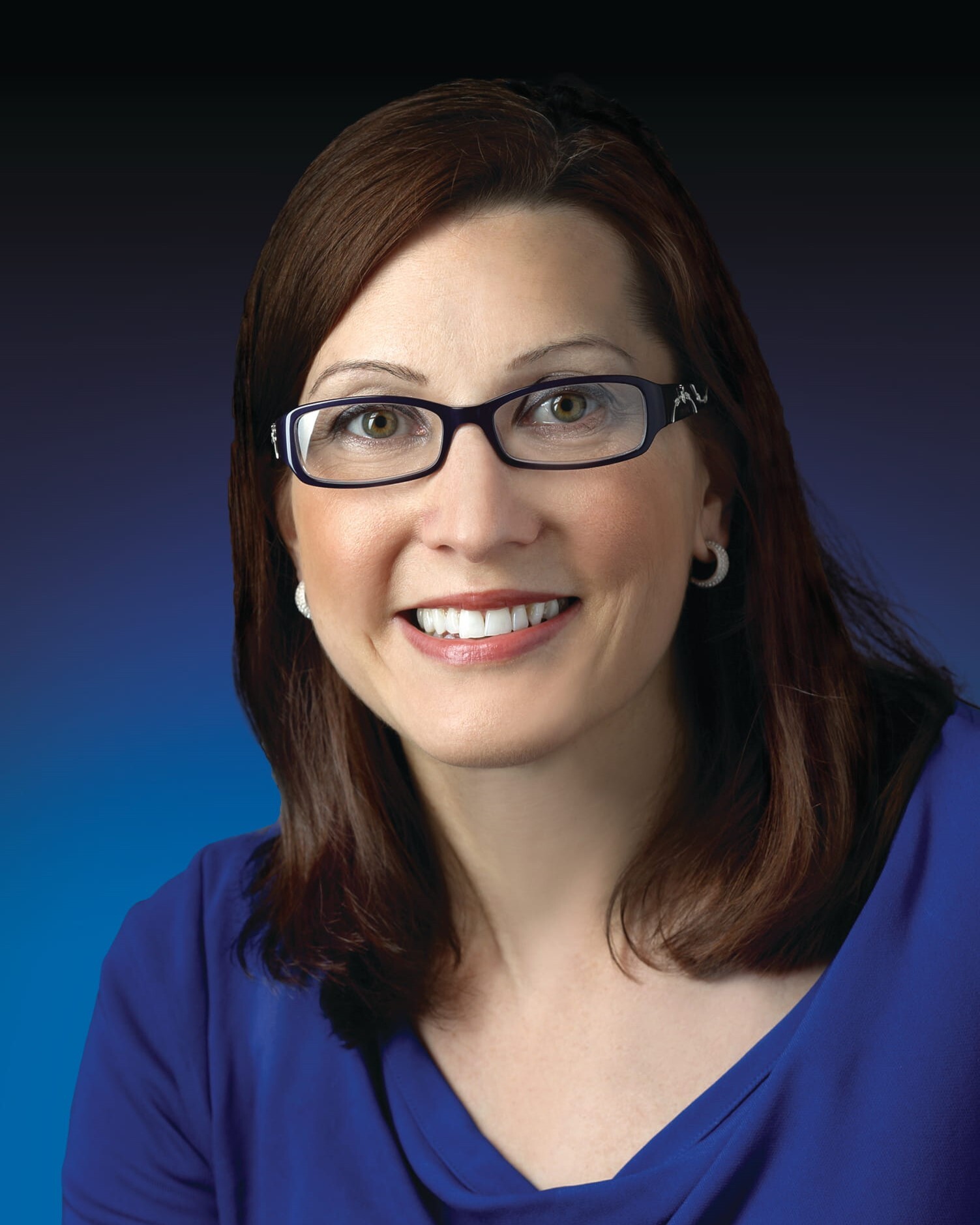
Maryann Amirshahi, PharmD, MD, MPH, PhD, FACMT
Emergency Medicine Attending Physician, Professor Of Emergency Medicine, Co-Medical Director
MedStar Washington Hospital Center, Georgetown University Hospital, National Capital Poison Center
Maryann Amirshahi completed her Bachelors in Pharmacy and PharmD degrees at the University of the Sciences in Philadelphia, followed by medical school at Temple University. She completed her emergency medicine residency at the Hospital of the University of Pennsylvania, medical toxicology fellowship at the George Washington University/National Capital Poison Center, and clinical pharmacology fellowship at Children’s National Medical Center. She also received an MPH from the George Washington University focusing on environmental and occupational health. She completed her PhD at Erasmus University, with a focus on pharmacology and public health. She is board certified in emergency medicine, medical toxicology, addiction medicine, and clinical pharmacology. She is also a registered pharmacist with over a decade of practice experience and is a Board Certified Pharmacotherapy Specialist.
She is a Professor of Emergency Medicine at the Georgetown University School of Medicine in Washington, DC. Maryann practices clinically at MedStar Washington Hospital Center, where she not only treats poisoned patients on a daily basis, but also plays a major role in bringing addiction care to the emergency department setting. She also is active at the health system level with roles in medication safety, opioid stewardship, and resident education. Nationally, she serves on the Board of Directors for the American College of Medical Toxicology. Maryann is currently the co-medical director at the National Capital Poison Center. Maryann is a proliferative researcher with nearly 200 peer-reviewed publications and book chapters. Her research interests include medication safety, medical toxicology, drug shortages, addiction treatment in the emergency department, and prescription drug abuse.

Carl Baum, MD, MSc, FAAP, FACMT
Professor of Pediatrics
Yale School of Medicine
Carl Baum, MD, FAAP, FACMT, is board-certified in Pediatric Emergency Medicine and in Medical Toxicology, and has over 25 years' experience in both subspecialties. He serves as attending physician in the Pediatric Emergency Department, and as Director of the state-funded Lead Poisoning and Regional Treatment Center. Nationally, Dr. Baum serves the following organizations: Executive Committee, Council on Children and Disasters, American Academy of Pediatrics, Medical Toxicology Subboard, American Board of Pediatrics/American Board of Emergency Medicine, National Biodefense Science Board, Administration for Strategic Preparedness & Response, US Department of Health and Human Services. In addition, he is a member of the International Society for Children's Health and the Environment.

Caitlin Bonney, MD
Assistant Professor of Emergency Medicine
University of New Mexico
Jeffrey Brent, MD, PhD, FACMT
Distinguished Clinical Professor of Medicine (Pulmonary and Critical Care) and Emergency Medicine
University of Colorado School of Medicine and Public Health
Jeffrey Brent, M.D., Ph.D., is a Distinguished Clinical Professor of Medicine (Pulmonary and Critical Care Medicine) and Emergency Medicine at the University of Colorado Schools of Medicine and Public Health. He did his fellowship in medical toxicology at the Rocky Mountain Poison and Drug Center, where he has been both medical director and fellowship director. He is a former President of the American Academy of Clinical Toxicology and a former Board member of the American College of Medical Toxicology. Dr. Brent is the senior editor of Critical Care Toxicology: the Diagnosis and Management of the Critically Poisoned Patient, currently in its second edition. Dr. Brent is Co-Principal Investigator of ACMT’s Toxicology Investigators Consortium.

Nicholas Buckley, MD, FRACP
Professor of Clinical Pharmacology
Sydney Pharmacy School
Nick Buckley is Professor of Clinical Pharmacology and a practicing clinical toxicologist consulting at RPA and through all the Poisons Centres in Australia. He is best known internationally for being a co-founder of the SACTRC collaboration, a centre of clinical toxicology research excellence in Sri Lanka with a focus on agrochemical poisoning and snakebite. http://www.sactrc.org/ Nick has been involved with contributing to the Australian Medicines Handbook since it was founded in 1998, and is now Chair of the Editorial Advisory Board. He was a founding Member of the Australian Advisory Committee on the Safety of Medicines (ACSOM). He is a past President of the Asia Pacific Association of Medical Toxicology. Nick is highly experienced in clinical epidemiology and research design. His research has attracted continuous project and program funding since 2002 and has resulted in an extensive publication record including 440+ peer reviewed journal articles and 22 book chapters. He has supervised or co-supervised over 20 higher degree students.
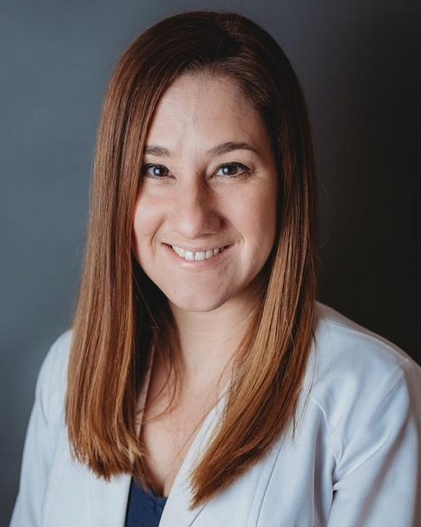
Stephanie Carreiro, MD, PhD, FACMT
Associate Professor, Director of the Tox(In)novation Lab
University of Massachusetts Chan Medical School
Dr. Stephanie Carreiro is an emergency medicine physician, medical toxicologist, and digital health researcher. She is a 2009 graduate of New York Medical College, and completed her emergency medicine residency in 2013 at Brown University. She completed a medical toxicology fellowship in 2015, and recently received a PhD in Biomedical Sciences both at the University of Massachusetts. She is currently an Associate Professor, Director of the Tox(In)novation Lab, and Research Director in the Department of Emergency Medicine at University of Massachusetts Chan Medical School. Her current research program focuses on developing digital therapeutics for substance use disorder, understanding how patients use and engage with technology, and leveraging digital technology to promote health equity. She is the principal investigator multiple industry and federally funded research grants, including several awards from the National Institute on Drug Abuse and National Institute of Biomedical Imaging and Bioengineering.

Alexis Cates, DO
Attending Physician, Emergency Medicine and Medical Toxicology
Ochsner Medical Center
Alexis Cates, DO trained in Emergency Medicine and Medical Toxicology at Einstein Medical Center in Philadelphia, PA. She recently returned home to New Orleans, LA and is now working to develop a Medical Toxicology division at Ochsner Medical Center. Professionally, she enjoys academics, perinatal toxicology, and health policy. She is the mother of two active boys, and she and her husband enjoy road trips and adventures with the kids.
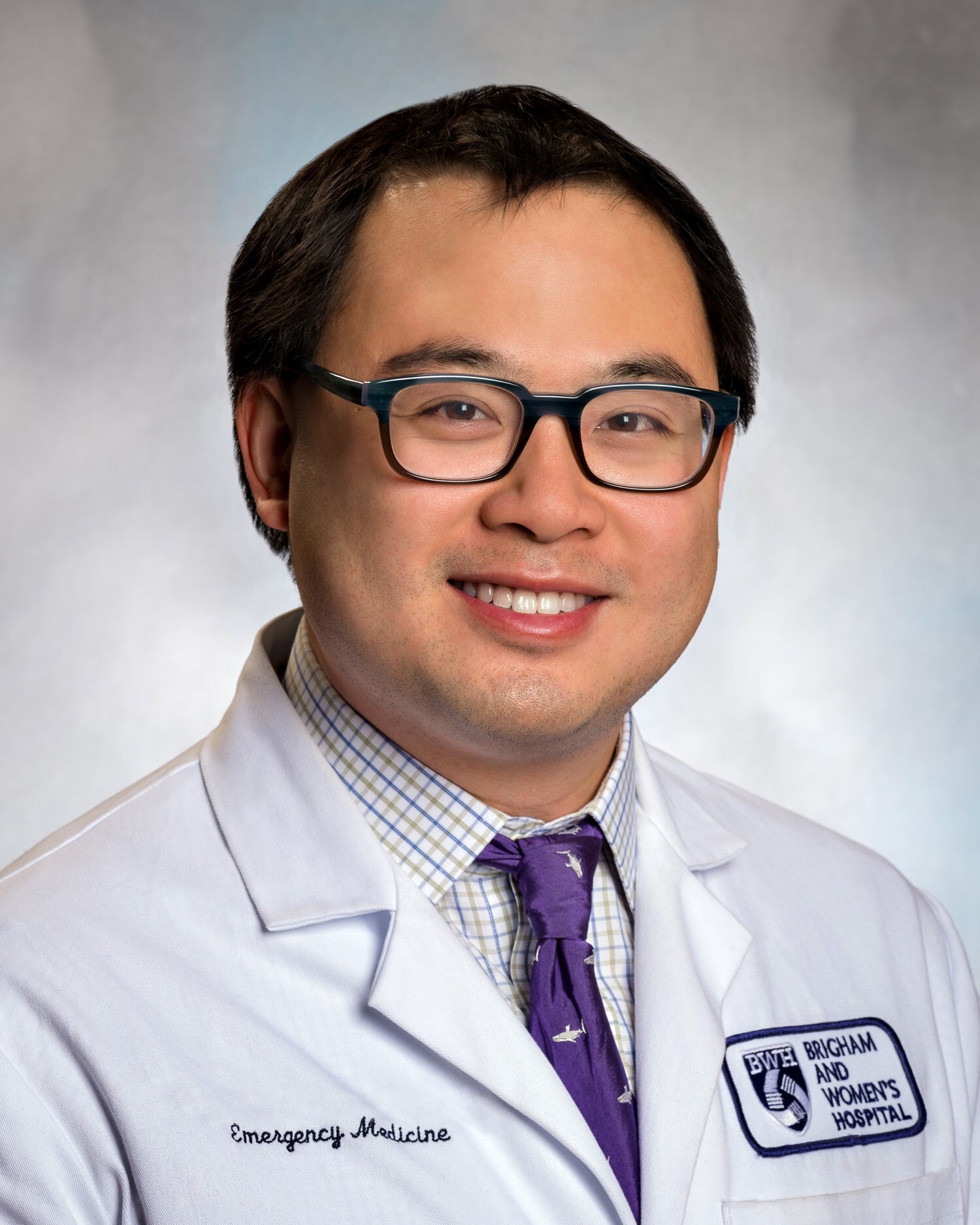
Peter Chai, MD, MMS
Associate Professor
Brigham and Women's Hospital
Dr. Peter R Chai is an associate professor of emergency medicine and medical toxicology at Brigham and Women’s Hospital/Harvard Medical School, and affiliate research scholar at the Koch Institute for Integrated Cancer Research at the Massachusetts Institute of Technology, and The Fenway Institute. He is also research faculty at the Dana Farber Cancer Institute. Dr. Chai’s research primarily involves the development and implementation of technological solutions that detect and respond to changes in disease. These translational projects ranges from design of novel robotic and sensor systems in animal models to human clinical trials to test the implementation of injectable and ingestible sensor systems and overlying behavioral science architecture to respond to disease states. Specifically, Dr. Chai is interested in applying ingestible electronic sensor systems to understand medication adherence in the context of substance use and HIV treatment/prevention. His work in developing ingestible sensors and their overlying behavioral interventions as closed loop systems to measure, reinforce and provide tools for PrEP and ART adherence has been funded by the National Institutes of Health and industry partners.
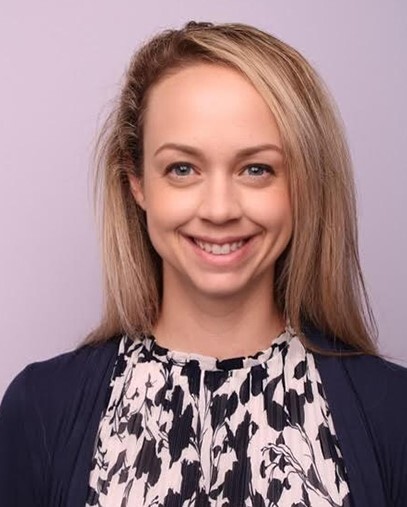
Rachel Culbreth, PhD, MPH
ToxIC Research Director
American College of Medical Toxicology
Dr. Culbreth joined the Toxicology Investigators Consortium/ACMT in May 2022. She received her PhD and MPH in epidemiology and biostatistics from Georgia State University. She was an Assistant Professor in the Department of Respiratory Therapy at Georgia State University from 2019-2022, where she taught undergraduate and graduate-level research methods and clinical supervision for respiratory therapy students. She has conducted multiple research projects on substance use and health disparities through internal and external grants. She’s worked with substance use disorders in both the United States and internationally.
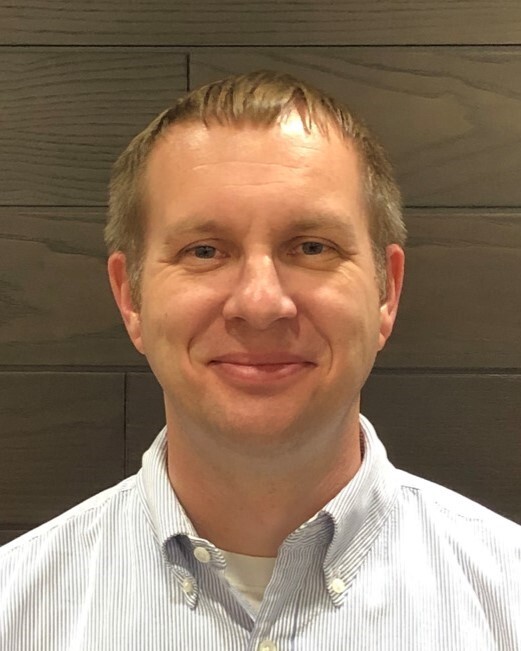
John Downs, MD, MPH
Medical Toxicologist
Virginia Commonwealth University (VCU) Health in Richmond, VA
John W. Downs MD MPH is a graduate of the Virginia Military Institute and served two years as a US Army infantry officer, prior to attending medical school at the Uniformed Services University of the Health Sciences (USU). Dr. Downs completed residency training in internal medicine at Tripler Army Medical Center, Honolulu, Hawaii, and in occupational & environmental medicine at USU, where he also completed a Master of Public Health degree. Dr. Downs later completed a fellowship in medical toxicology at the Virginia Commonwealth University (VCU) Health System. Dr. Downs was a US Army officer for more than 20 years and recently joined VCU as medical toxicology faculty. His final active-duty tour was at the Uniformed Services University where he was an Associate Professor and the Associate Program Director for the Occupational and Environmental Medicine residency, and an attending physician at Walter Reed National Military Medical Center. His military medical experience includes multiple tours as senior medical officer to special operations and light infantry units to include deployments to operations in Iraq and Afghanistan. Dr. Downs’s public health experience includes service as Chief of the Department of Preventive Medicine at Fort Campbell, Kentucky, and Chief, Occupational & Environmental Medicine Service, Walter Reed National Military Medical Center during the COVID-19 pandemic. Dr. Downs is board certified as a physician in internal medicine, occupational & environmental medicine, and medical toxicology. Dr. Downs also holds allied health certifications as a certified public health professional (CPH), and Diplomate of the American Board of Toxicology (DABT). Dr. Downs is a recipient of the Army Surgeon General’s 9A Proficiency Designation in occupational and environmental medicine. He has authored more than 25 peer-reviewed publications. He is a Fellow of the American College of Physicians, and the American College of Occupational and Environmental Medicine.
Leslie R. Dye, MD, FACMT, FASAM, FACCT
Interim Medical Director, OneFifteen
Clinical Professor, Wright State University/Boonshoft School of Medicine
Leslie R. Dye, MD is triple board certified in emergency medicine, medical toxicology, and addiction medicine. She has worked in the fields of medical toxicology and addiction medicine for 30 years. In addition to her clinical expertise, she has academic and business content expertise from experiences as an editor-in-chief (EIC) of a peer-reviewed medical journal (Journal of Medical Toxicology) and EIC of physician and pharmacist content production for a leading international medical digital content provider. Her deep subject matter expertise is demonstrated in her role as senior editor of the textbook, Case Studies in Medical Toxicology, author of 18 peer reviewed publications and 16 textbook chapters, 66 national and 11 international presentations, 10 various commentaries, interviews, and podcasts. Her leadership skills have been proven in both corporate and academic environments, as professor at a medical school, long-term board member and past president of the American College of Medical Toxicology, Chair of the Addiction Medicine Committee, former co-chair, and co-moderator of the AACT Acute and Intensive Care Symposium, and as the manager of as many as 30 team members at an international corporation. She received a funded grant that enabled her to start the first poison control center in mainland China and trained 6 Chinese physicians in the field of medical toxicology over 3 years in the US. Dr. Dye is experienced in and continues to provide medical care in remote polar regions with no access to advanced medical facilities.
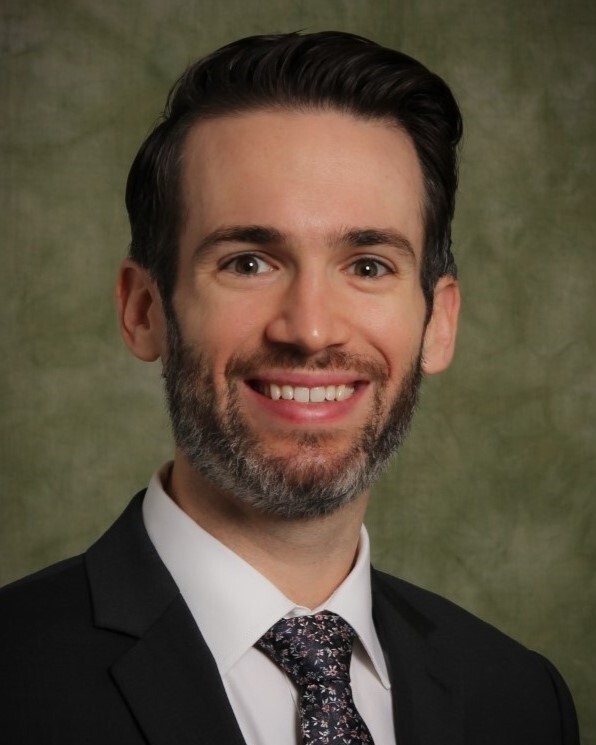
William Eggleston, PharmD, DABAT, FAACT
Clinical Assistant Director & Assistant Professor
Upstate New York Poison Center & SUNY Upstate Medical University
William Eggleston is originally from Binghamton, N.Y., and joins Binghamton University as a clinical assistant professor. He received his Doctor of Pharmacy degree from Wilkes University and completed a fellowship in clinical toxicology and emergency medicine at SUNY Upstate Medical University and with the Upstate New York Poison Center in Syracuse, N.Y. He comes to Binghamton from SUNY Upstate Medical University, where he served as an assistant professor in the Department of Emergency Medicine, and the Upstate New York Poison Center, where he worked as a clinical toxicologist.Eggleston is the director of the Opioid Research Center for Central New York (ORCC-NY), a multidisciplinary team of scientists, healthcare providers, and community partners working to develop innovative ideas and strategies for treating and preventing the harms of opioid use disorder.
Additionally, he is a member of the executive board of the New York State chapter of the American College of Clinical Pharmacy (ACCP).Eggleston is an active member of the American Academy of Clinical Toxicology where he serves as a member of the International Clinical Toxicology Recommendations Collaborative. His primary research interests are opioid use disorder treatment, opioid-related harm reduction strategies, and drug-induced cardiac toxicity. He is passionate about developing web-based content and tools within the Free Open Access Medication (FOAM) community that simplify drug-induced disease states in a manner that highlights interprofessional education and collaboration. His practice site is SUNY Upstate Medical University, where he works with an interprofessional inpatient toxicology consultation team and with the Upstate New York Poison Center, where he provides toxicology consultation, leads public health initiatives and performs public education.
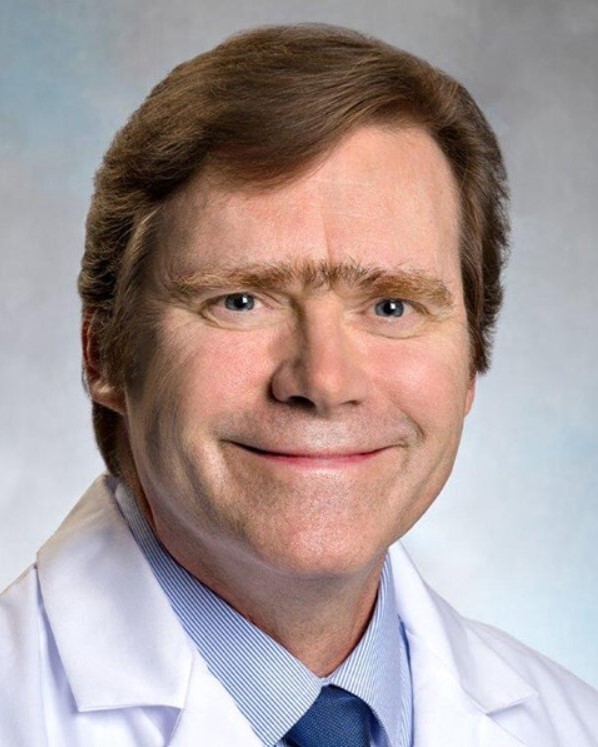
Timothy B. Erickson, MD, FACMT
Emergency Medicine Physician, Division of Medical Toxicology
Brigham and Women’s Hospital
Dr. Timothy B. Erickson is an emergency medicine physician at the Brigham and Women’s Hospital in Boston, MA, USA where he serves as the Chief of Medical Toxicology in the Department of Emergency Medicine. He is also a teaching faculty member at Harvard Medical School. Dr. Erickson is also a core faculty member at the Harvard Humanitarian Initiative (HHI) in Cambridge, MA with expertise in environmental toxicology and crisis in climate change. He has active humanitarian health projects in Nepal and India as well as in conflict regions of Ukraine and Syria.
Dr. Erickson has been a member of multiple editorial boards and has a prolific academic history including publishing over 120 original journal articles and book chapters as well as editing 4 major textbooks. He has presented over 100 national and international invited lectures related to emergency medicine, toxicology, humanitarian global health, and wilderness/expedition medicine.
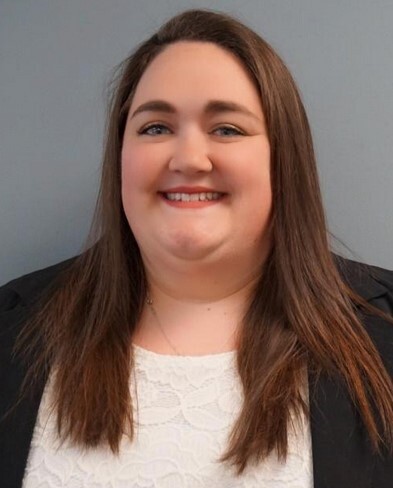
Alyssa Falise, PhD, MSPH
Research Associate, Toxicology Investigators Consortium
American College of Medical Toxicology
Alyssa joined the Toxicology Investigators Consortium/ACMT in November 2023. Alyssa earned her PhD in epidemiology from the University of Florida and her MSPH from the University of Miami. While at the University of Florida, Alyssa was trained in psychiatric epidemiology as a National Institute on Drug Abuse T32 Pre-Doctoral Fellow in the UF Substance Abuse Training Center in Public Health. In 2023, Alyssa was awarded the College on Problems of Drug Dependence’s Female Opioid-addiction Research and Clinical Experts (FORCE) Junior Investigator Award for her research addressing opioid use and non-medical use among middle and older adults.
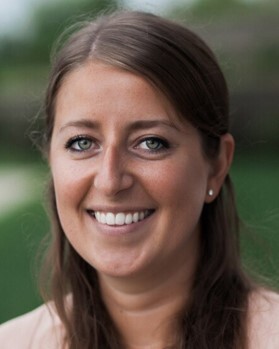
Charlotte Goldfine
Medical Toxicologist
Brigham and Women's Hospital
Charlotte Goldfine, MD is an emergency medicine physician and medical toxicologist at Brigham and Women’s Hospital (BWH). She is the course director for the Harvard-Affiliated Emergency Medicine Residency toxicology core rotation and the BWH site fellowship director for the Harvard Toxicology Fellowship. Her research is focused on medication safety, medical education, and advances in digital health technologies, novel therapeutics, and drug-delivery systems in the treatment of substance use disorders.
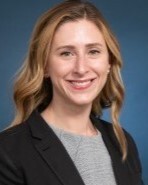
Arielle Graham, MD
Associate Psychiatrist & Instructor
Brigham and Women’s Hospital & Harvard Medical School
Dr. Graham is double board-certified (adult and child/adolescent) psychiatrist with expertise in emergency mental health, consultation-liaison psychiatry, medical education/training, clinical informatics and medical writing/editing.
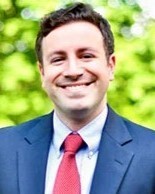
Powell Graham, MD
Assistant Professor of Emergency Medicine & Director of Outpatient Toxicology
UMass Chan Medical School & UMass Memorial Health
Dr. Graham is an emergency medicine physician, and medical toxicology fellow. He previously served as chief resident UMass and was a residency representative for MACEP. He has published on multiple topics including ultrasound and prostate cancer. His current research interests lie in cannabinoids, particularly pediatric exposures.

Daniel Hryhorczuk, MD, FACMT
Professor Emeritus
University of Illinois Chicago
Daniel Hryhorczuk was born in Champaign, Illinois in the “heart of the heart of the country.” The son of Ukrainian immigrants, he grew up in Chicago’s Ukrainian Village neighborhood. He received his BA in English (creative writing) from Northwestern University where his short story “The Ice Cross” won first place in the Orgy of the Arts. He received his MD and MPH degrees from the University of Illinois and pursued a career in medicine, toxicology, and global health before returning to creative writing. His first novel, Caught in the Current, revisited the world of his youth -- ethnic America and offbeat Europe during the psychedelic sixties.
The Midwest Book Review described it as “one amazing read and decidedly establishes Daniel Hryhorczuk as a talented author of wit, imagination, and a fundamentally gifted storyteller.” His second novel, Myth and Madness, explores Ukraine’s “revolution of dignity” during the winter of 2013/14. He has received commendations from the City of Chicago, the White House, and the Ukrainian government for his work on social and health issues in Ukraine. His most recent novel, Amerikana, explores the country of his birth and what it truly means to be an American. He lives in the Chicago area with his wife Christine.

Heath A. Jolliff, DO, FACMT, FACEP, FAAEM, ACC
Certified Executive Physician Coach
Physician Coaching Solutions, LLC & Mid-Ohio Toxicology Services, LLC
Dr. Health Jolliff has more than 25 years of clinical practice and is dual board-certified in Emergency Medicine and Medical Toxicology. He is now certified as an executive coach, working with physicians in all stages of their careers. He works to help them find focus, direction and solutions to their current and future career challenges. He works as an an educator, a national speaker and has his own consulting business.
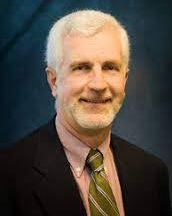
William "Russ" Kerns, II, MD, FACMT, FACEP
Emeritus Professor of Emergency Medicine
Carolinas Medical Center
Dr. Kerns trained in Emergency Medicine and Medical Toxicology and served as Professor in both disciplines at Carolinas Medical Center for 33 years. Faculty roles included leadership of the Medical Toxicology Fellowship and clinical division, consultation for the Carolinas Poison Center, and research. Research interests included antidotes, envenomation, and resuscitation of cardiotoxic drugs. He also served the ACMT focusing on advancing research and education.
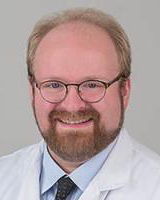
Joshua D. King, MD, FACMT
Associate Professor, Medicine and Pharmacy; Medical Director, Maryland Poison Center
University of Maryland School of Medicine
Dr. King received his medical education from Penn State College of Medicine, and completed Internal Medicine residency and chief residency at the University of Virginia. He completed Nephrology fellowship at Johns Hopkins Hospital, and after returning to the University of Virginia as a nephrologist, completed a medical toxicology fellowship there. Dr. King is a clinician-educator nephrologist and medical toxicologist with clinical interests in extracorporeal treatment of poisonings, extracorporeal removal of therapeutic drugs, ICU nephrology, and medical education. As a clinician, he sees hospitalized patients at the University of Maryland Medical Center on our nephrology consultation service as well as our medical toxicology consult service. He is involved in education primarily at the graduate medical education level, and to a lesser extent undergraduate medical education. Dr. King is also the medical director of the Maryland Poison Center, which provides poisoning information and treatment recommendations benefitting thousands of Marylanders each year. Dr. King carries out medical oversight of recommendations for poisonings, envenomations, and overdoses to the public and health care providers; provides education to a variety of students (pharmacy and medical) and physicians (residents and fellows) who rotate with the center; he is involved in a variety of other activities aimed at treatment and prevention of poisoning. Dr. King's research interests are largely focused where nephrology and toxicology meet – extracorporeal removal of toxins (via dialysis, apheresis, and other modalities).
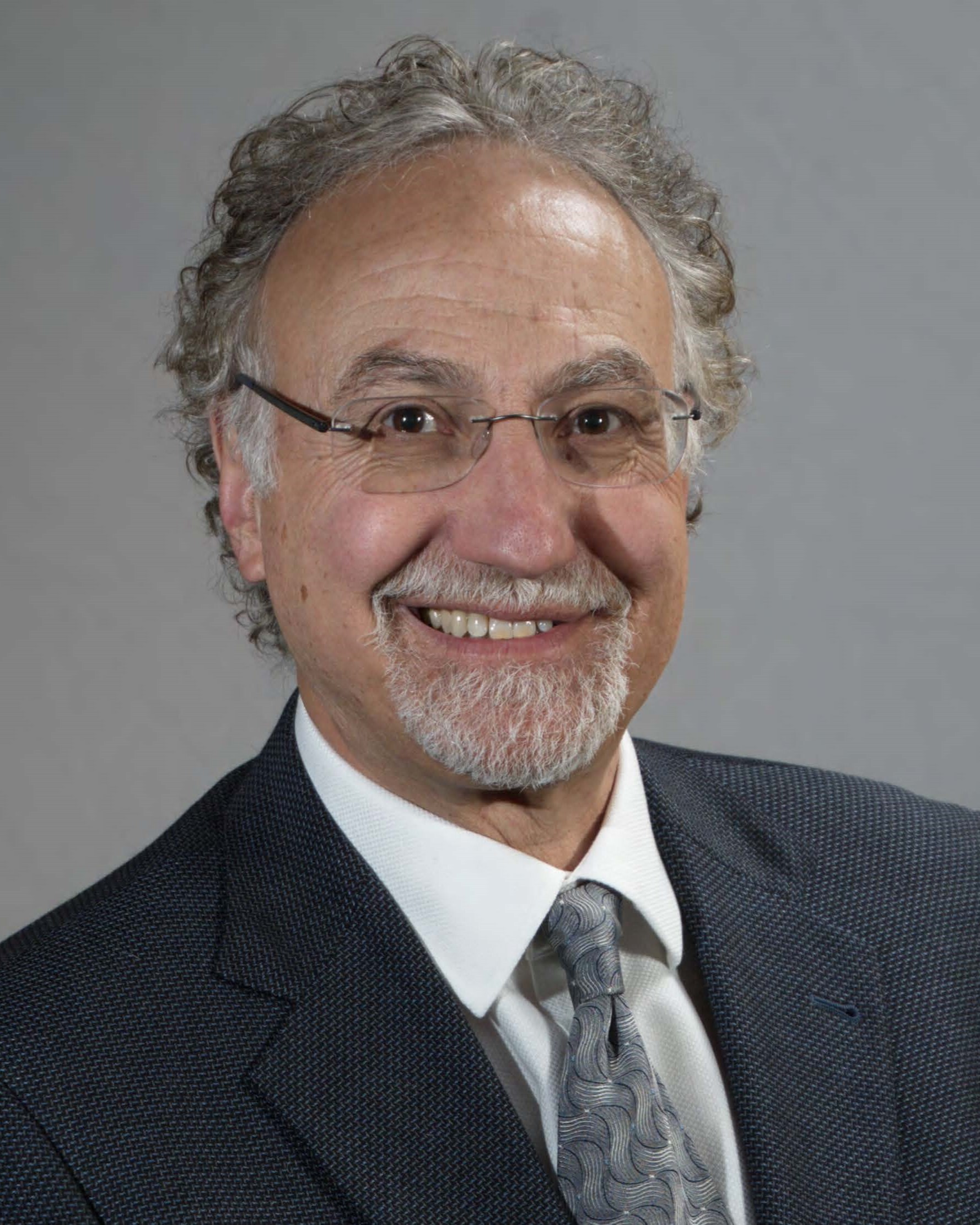
Michael J. Kosnett, MD, MPH, FACMT
Associate Clinical Professor, Department of Medicine
University of Colorado School of Medicine
Michael J. Kosnett, MD, MPH, FACMT has 34 years of experience as a physician specializing in medical toxicology and occupational and environmental health. He is board certified in internal medicine, medical toxicology, and preventive medicine (occupational medicine). He has served in a leadership and advisory capacity to multiple national and international medical and public health organizations. This includes service as past president of the American College of Medical Toxicology and a member of the Committee on Toxicology of the National Academies of Sciences, Engineering, and Medicine and the Board of Scientific Counselors of the National Institute for Occupational Safety and Health. In addition, Dr. Kosnett has served as a consultant and temporary advisor to the World Health Organization; EPA Science Advisory Board expert panels; and advisory committees of the CDC National Center for Environmental Health and ATSDR. He has also served as a medical toxicology consultant to the US Army Public Health Command, the US Air Force Science Advisory Board, and the US Navy Naval Air Systems Command. In 2016, the American College of Medical Toxicology awarded Dr. Kosnett the Matthew J. Ellenhorn Award, a career achievement award that recognizes “extraordinary contributions to the field of medical toxicology.”
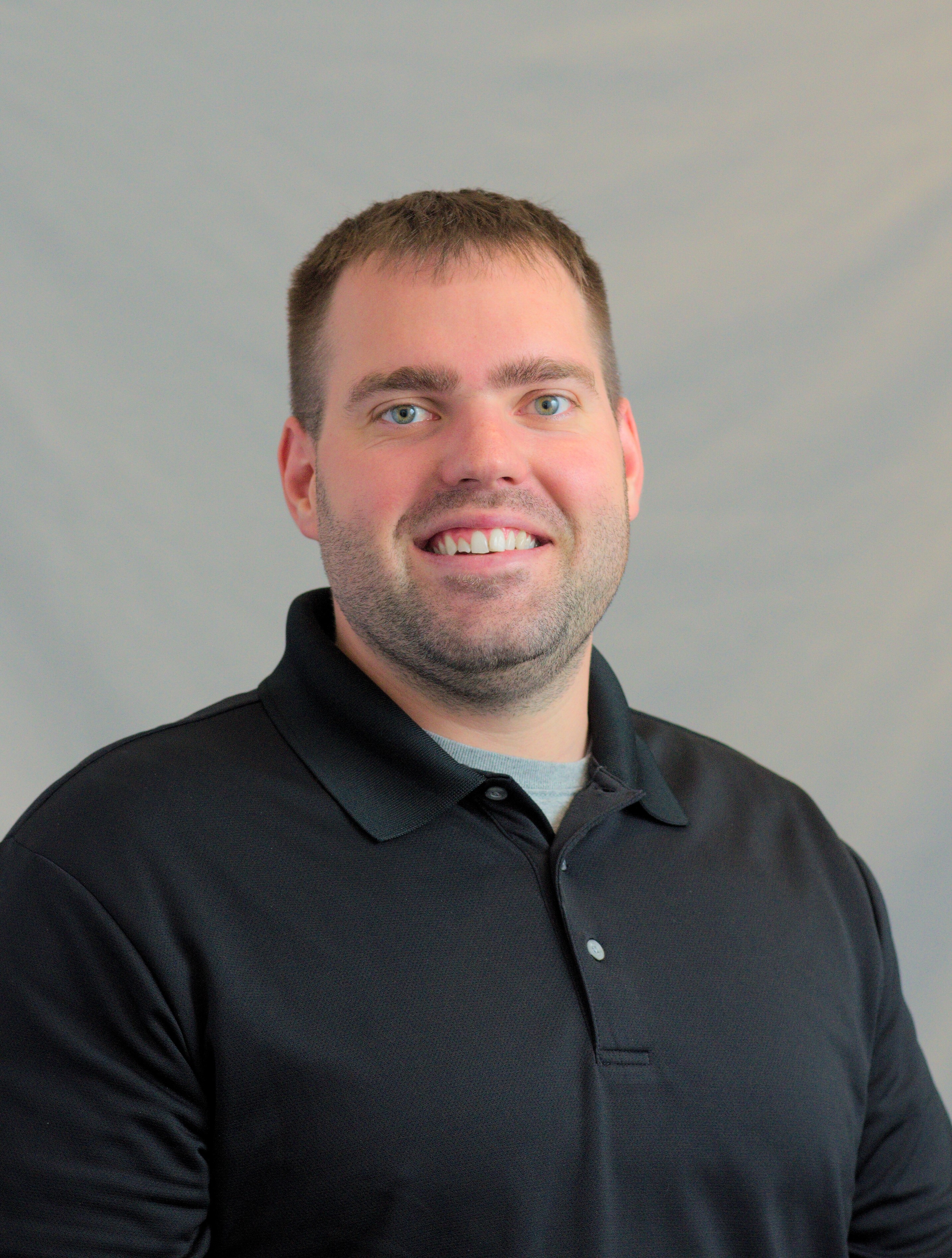
Alex Krotulski, PhD
Associate Director of Toxicology & Chemistry
The Center for Forensic Science Research and Education
Dr. Alex Krotulski serves as an Associate Director at CFSRE working in the areas of forensic toxicology and forensic chemistry and is the Program Manager for NPS Discovery. Dr. Krotulski holds faculty appointment and serves as the Assistance Program Director for the Thomas Jefferson University Master of Science in Forensic Toxicology (MSFT) program and was recently appointed as an Associate Editor for the Journal of Analytical Toxicology. Dr. Krotulski received his Doctor of Philosophy degree in Analytical Chemistry from Temple University in 2019 following receipt of his Master of Science degree in Forensic Science from Arcadia University in 2015 and Bachelor of Science in Chemistry from Loyola University New Orleans in 2013.
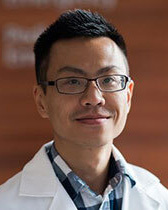
Jeffrey Lai, MD
Assistant Professor of Emergency Medicine
UMass Memorial
Jeffrey Lai, MD, is an emergency physician and medical toxicologist at UMass Chan Medical School and UMass Memorial Health. He is the medical toxicology fellowship director and the clerkship director for the Introduction to Medical Toxicology elective at UMass Chan Medical School. His academic interests include medical education, the application of novel technologies to the treatment of substance use disorder, and the surveillance of impairing substances in patients with severe traumatic injuries.
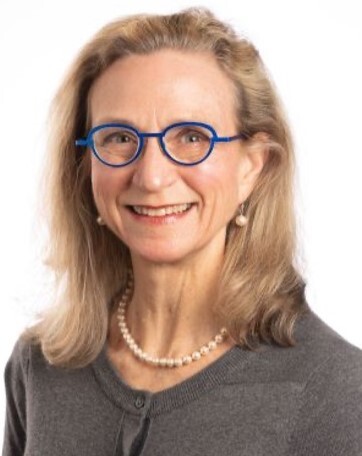
Erica Liebelt, MD, FACMT
Medical and Research Director, Clinical Pharmacology and Toxicology
University of Arkansas for Medical Sciences
Dr. Erica Liebelt is a Professor of Pediatrics at the University of Arkansas for Medical Sciences (UAMS). She serves as the Medical and Research Director of Clinical Pharmacology and Toxicology in the Section of Pediatric Emergency Medicine as well as the Associate Medical Director of the Arkansas Poison and Drug Information Center. Dr. Liebelt is also an attending physician at Arkansas Children’s Hospital’s pediatric emergency department.
Dr. Liebelt served on the American College of Medical Toxicology (ACMT) Board of Directors for 13 years, serving as its first woman President from 2008-2010. She was on the American Board of Pediatrics’ General Certification Committee for 11 years and also on the Medical Toxicology Sub-Board with the American Board of Emergency Medicine for 9 years. She has also authored 36 book chapters for leading toxicology textbooks and 58 manuscripts and review articles. In 2020, Dr. Liebelt was recognized by her peers and presented with the American College of Medical Toxicology’s Career Achievement Award which honors an individual who has made extraordinary contributions to the field of medical toxicology in teaching, clinical practice, research, and service.
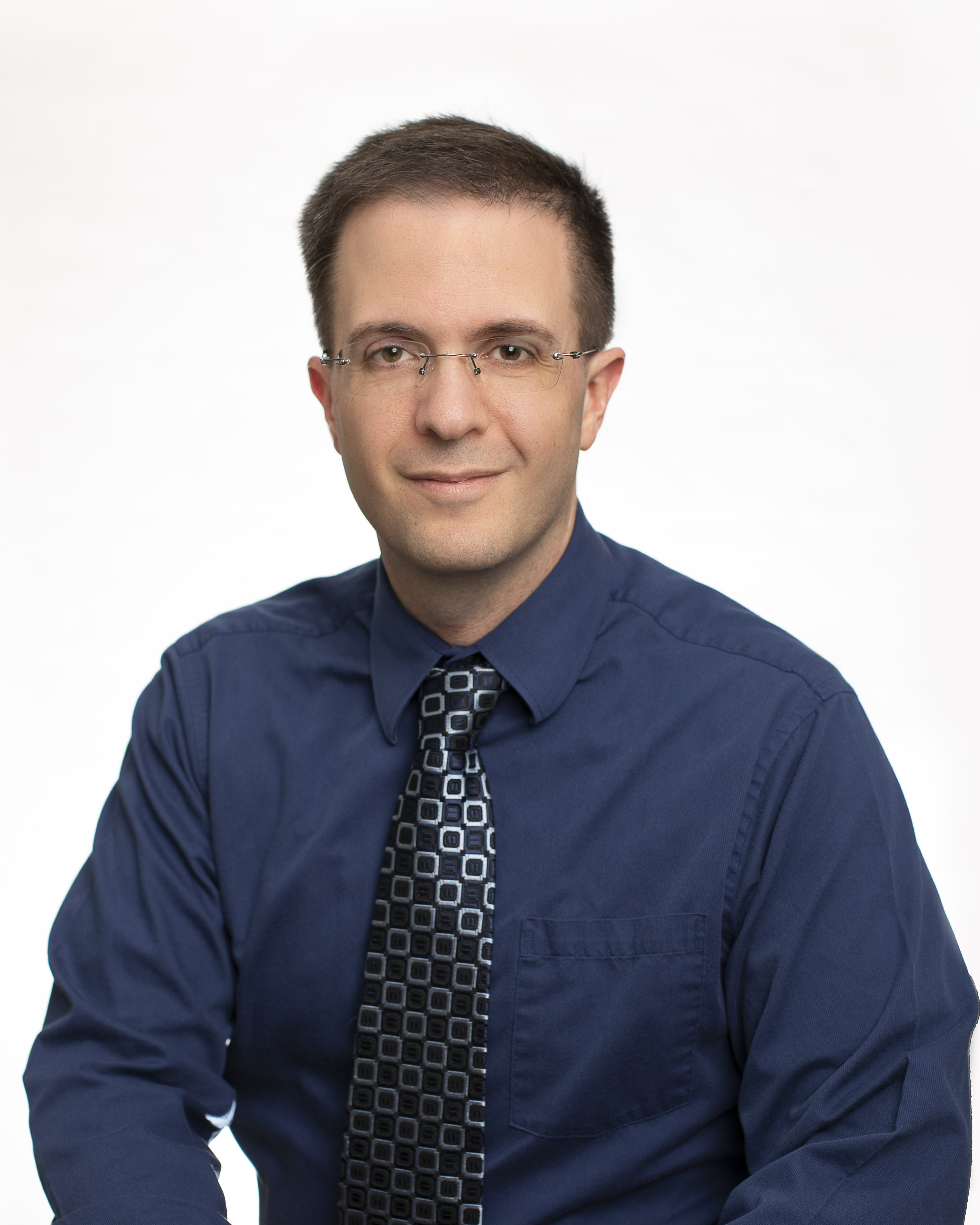
Kevin F. Maskell, Jr., MD
Assistant Professor of Military and Emergency Medicine
Brooke Army Medical Center
Dr. Maskell is board certified in emergency medicine, medical toxicology, and addiction medicine. He has an appointment as Assistant Professor of Military and Emergency Medicine at Uniformed Services University of Health Sciences and currently serves as the Medical Director of the Tactical Medicine Readiness Division at the US Army Medical Department Medical Center of Excellence, Ft. Sam Houston, Texas. He also serves as guest faculty at Brooke Army Medical Center and as a Consulting Toxicologist for the Washington Poison Center. He graduated from Chicago Medical School at Rosalind Franklin University of Medicine and Science, completed his Emergency Medicine residency at Madigan Army Medical Center in Tacoma, Washington, and his Medical Toxicology fellowship at Virginia Commonwealth University in Richmond, Virginia.
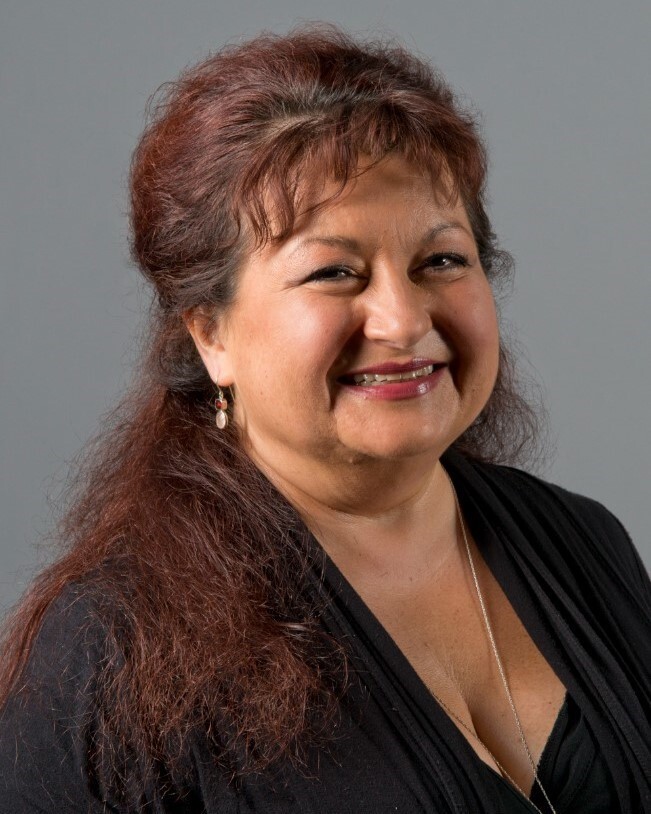
Lisa Moreno-Walton, MD, MS, MSCR, FAAEM, FIFEM
Professor of Clinical Emergency Medicine
Louisiana State University Health Sciences Center

Nancy Murphy, MD, FACEP, FAAEM, FACMT, FAACT, FASAM
President
Canadian Association for Poison Centres and Clinical Toxicology

Mykola Prodanchuk, MD, PhD
Director, LI Medved Research Center of Preventive Toxicology
Ministry of Health Ukraine
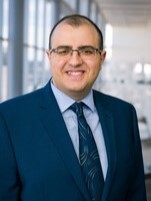
Kerollos Shaker, MD
Board Certified Emergency Medicine and Medical Toxicologist
Houston Methodist
Dr. Kerollos Shaker is a board certified Emergency Medicine Physician and Medical Toxicologist in Houston, Texas. He graduated from University of Alabama School of Medicine. He completed residency in Emergency Medicine and fellowship in Medical Toxicology. Currently practicing as an ER Doctor and Toxicologist Consultant. He is also a Laboratory Director with experience in high-complexity labs. ATLS, ACLS, PALS certified. Medical Licenses in Texas and Florida.
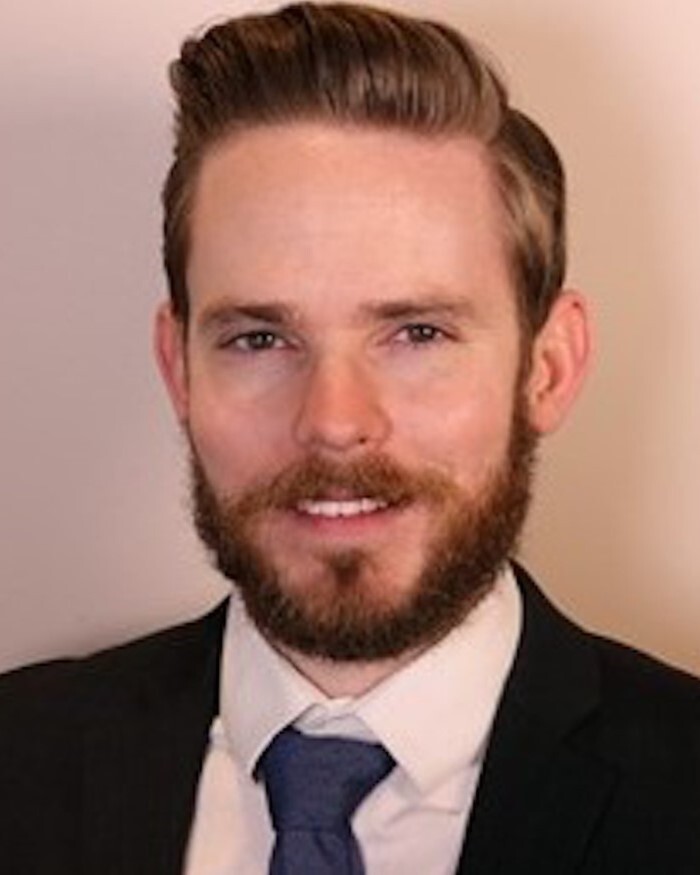
Michael Simpson, MD
Emergency Medicine Physician
Beth Israel Deaconess Medical Center
Dr. Simpson is an emergency physician and medical toxicologist at Beth Israel Deaconess Medical Center. He completed his residency at Vanderbilt University Medical Center and his medical toxicology fellowship at the Harvard Medical Toxicology Fellowship. His research interests include prediction and management of cardiovascular toxicity in acute drug overdose.
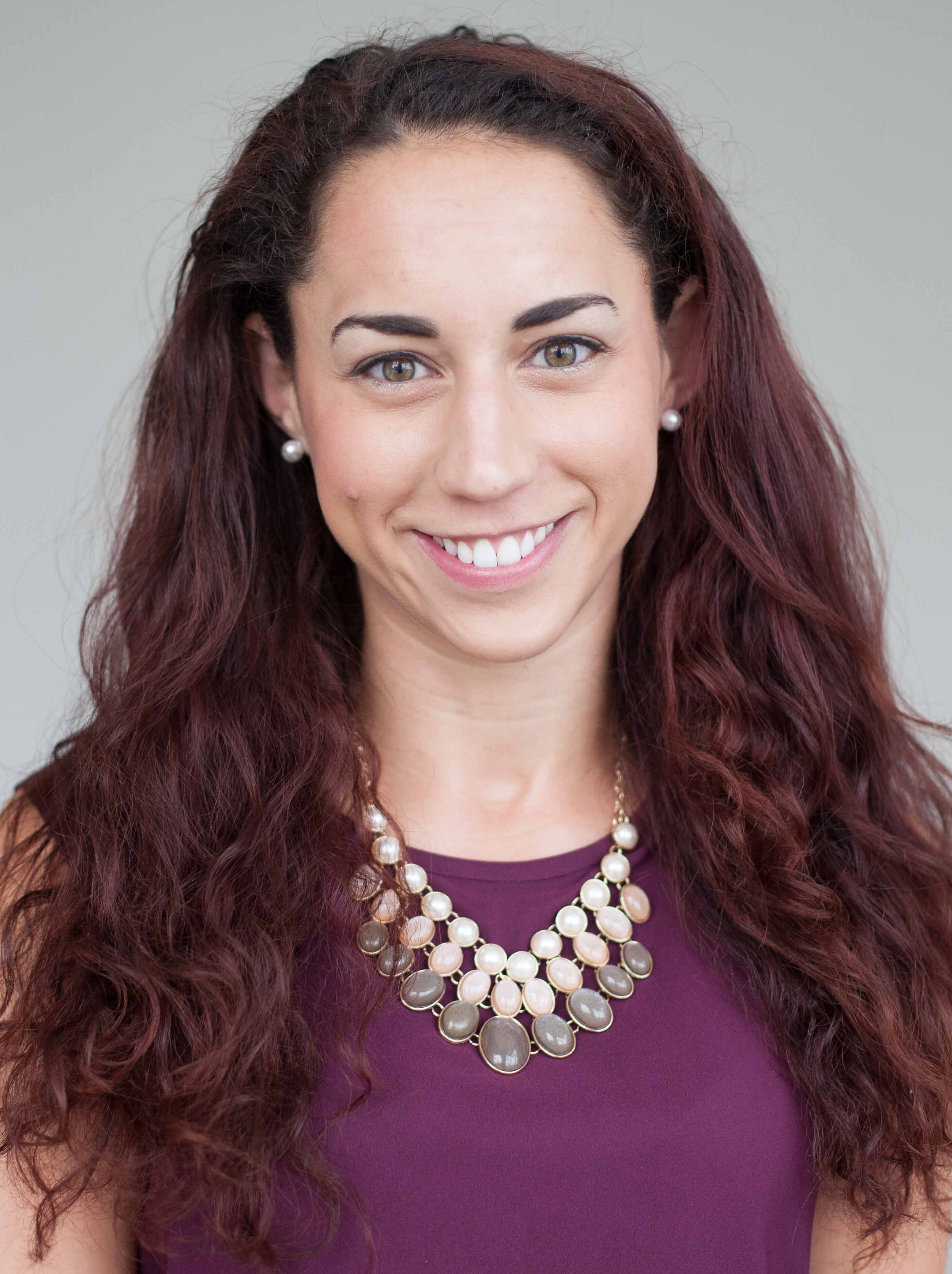
Hannah Spungen, MD, MPH
Toxicology Fellow
Banner University Medical Center-Phoenix
Dr. Spungen is a second year Medical Toxicology fellow at Banner—University Medical Center Phoenix. She completed her Emergency Medicine residency at UCLA Ronald Reagan/Olive View. Her research interests include bias and spin in scientific communication, vasopressor dosing in cardiodepressant drug toxicity, and using R to explore large toxicologic data sets.
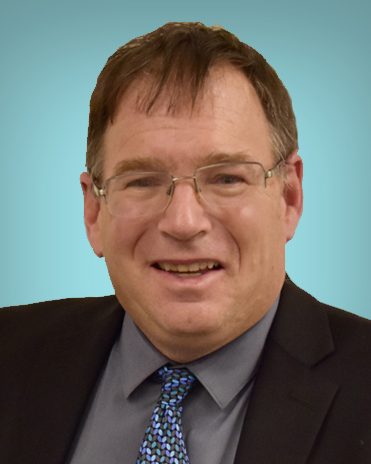
Paul M. Wax, MD, FACMT
Executive Director
American College of Medical Toxicology (ACMT)
Dr. Wax is the Executive Director of the American College of Medical Toxicology. He received his B.A from Dartmouth College, his M.D. from the Mount Sinai School of Medicine, his Emergency Medicine training at the UCLA Hospitals, and his Medical Toxicology training at Bellevue Medicine Center / New York University. He is Board-certified in both Medical Toxicology and Emergency Medicine, and is a Fellow of the American College of Medical Toxicology.

Michael Yeh, MD, MS
Medical Officer
Centers for Disease Control and Prevention & National Center for Environmental Health
Michael Yeh, MD, MS, is a medical officer at the National Center for Environmental Health, Centers for Disease Control and Prevention (CDC), in Atlanta, Georgia, and a Lieutenant Commander in the U.S. Public Health Service Commissioned Corps. Michael obtained a B.S. in biology from SUNY Stony Brook, an M.S. in journalism from Columbia University, as well as an M.S. in epidemiology and M.D. from the University at Buffalo. He completed a combined internal medicine / emergency medicine residency at Allegheny General Hospital in Pittsburgh. Michael worked as an emergency physician in community hospitals on Long Island and Rhode Island before completing the Emory University/CDC fellowship in medical toxicology in 2021. His current activities at CDC include working with America’s Poison Centers on surveillance of chemical exposures and public health hazards, acute outbreak investigations, emergency preparedness for chemical and radiological disasters, and medical toxicology fellow education.
Continuing Education
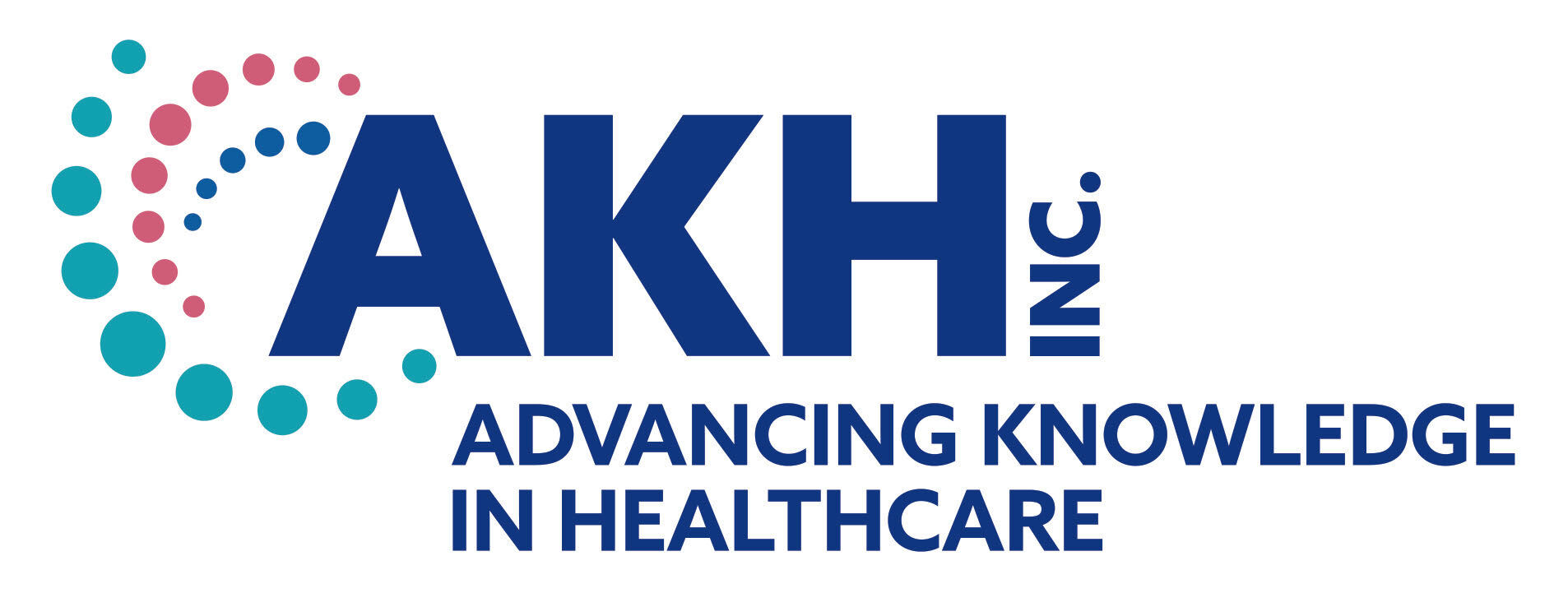
Continuing Education credit for this activity is available for an additional fee.
Accreditation is provided by AKH Inc., Advancing Knowledge in Healthcare, and registrants will be able to claim up 15.50 credits, commensurate with their participation.
Available Continuing Educations Credits:
- Continuing Medical Education (CME)
- Continuing Pharmacist Education (CPE)
- Continuing Nursing Education (CNE)
Travel Info
ACMT is heading to Vancouver for the 2025 ACMT Annual Scientific Meeting & Symposia! If you are a US Citizen, you will need a valid passport to enter Canada. Citizens of other countries may need additional documentation, like a Visa. Not sure what documents you’ll need? No problem! Click on the button below to find out what sorts of identity documents you will need to successfully enter Canada and attend #ACMT2025.
Find Out If You Need a Visa to Travel to Canada
Visa Information
Obtaining a Visa to enter Canada is the responsibility of the participants. ACMT has registered this conference with the Immigration, Refugees and Citizenship Canada’s (IRCC) Special Events Liaison Unit (SELU) and can assist you by issuing an invitation letter, however, we are not involved in the visa issuing process, this is solely the responsibility of the competent Canadian embassy or consulate.
You must be registered participant to be considered for an invitation letter. ACMT is not allowed to issue invitation letters to anyone who has not fully paid their conference registration fee. To avoid any delays, we encourage all those who need a visa to enter Canada, to register as early as possible and apply for the visa.
Hotel – Discounted Group Block
ACMT has secured a discounted rate for attendees of our 2025 ACMT Annual Scientific Meeting & Symposia. We encourage you to book your stay at the conference hotel for the best selection and price!
Fairmont Hotel Vancouver
900 West Georgia St.
Vancouver, BC VC6 2W6Exclusive hotel rate available until March 10, 2025 or when room block is filled, whichever comes first.
First-Time Attendees will be assigned buddies!
New to ACMT and/or our conference? If you're a first-time attendee, you'll be automatically assigned a Buddy to enhance your conference experience! Your Buddy/Member will be a friendly, knowledgeable guide to show you around, introduce you to key sessions, and help you network with other attendees. They will be available to answer your questions and provide insights to ensure you feel welcomed and well-prepared. By having a Buddy, you'll gain a head start in making meaningful connections and fully benefiting from all the opportunities our conference has to offer. Don't miss this chance to start your ACMT journey with a supportive community right by your side.
Invitation to Serve as a Buddy
Are you a seasoned ACMT member who loves to share your knowledge and enthusiasm? We invite you to become a Buddy for our upcoming conference! As a Buddy, you'll have the opportunity to welcome new members, show them around, and help them navigate the event. It's an easy gig where you'll make yourself available for introductions and Q&A, ensuring that our new attendees feel at home and can make the most of their conference experience. Volunteering as a Buddy is a fantastic way to give back to the ACMT community, build new connections, and reinforce the collaborative spirit that makes our association special. Join us in creating a warm, inclusive environment where everyone can thrive.
-
Register
- Early bird pricing available!
- Non-member - Tier I - $950
- Non-member - Tier II - $650
- Non-member - Tier III - $550
- Non-member - Tier IV - $450
- Member - Tier I - $650
- Member - Tier II - $450
- Member - Tier III - $350
- Member - Tier IV - $250
- Regular Price after 02/21/2025 11:59 PM
- Non-member - Tier I - $1,050
- Non-member - Tier II - $750
- Non-member - Tier III - $650
- Non-member - Tier IV - $550
- Member - Tier I - $750
- Member - Tier II - $550
- Member - Tier III - $450
- Member - Tier IV - $350
- More Information
-
Contains 3 Component(s) Includes a Live In-Person Event on 04/03/2025 at 9:00 AM (PDT)CE Credit available
April 3, 2025
2025 ACMT Symposium | Harm Reduction in the Management of SUD
April 3, 2025
Fairmont Hotel, Vancouver CanadaJoin the American College of Medical Toxicology (ACMT) on Thursday, April 3, 2025 for the ACMT Symposium: Harm Reduction in the Management of SUD at the Fairmont Hotel in Vancouver, Canada.
Harm reduction has become a key tool in managing substance use disorders (SUD), yet remains loosely defined. It encompasses various measures, including needle exchanges, naloxone distribution, safe consumption sites, and fentanyl test strips. While needle exchange programs have proven effective in reducing infections from intravenous drug use, the impact of other harm reduction strategies is harder to quantify.
Support for harm reduction varies among professionals and the recovery community, with its success depending on when and where the tools are used, the methods chosen, and the combination with other treatments. Different settings—emergency departments, ICUs, or outpatient clinics—may require distinct approaches.
Vancouver’s pioneering leadership in harm reduction makes it an ideal location for this full-day in-person symposium, which will explore harm reduction in detail, presenting the latest evidence and examining its application in special populations, healthcare settings, and recovery stages. Topics include integrating harm reduction with SUD medications and substance use education, inpatient high-dose methadone titration, and a case-based panel discussion on “Lived Experience.” The symposium will appeal to a wide range of professionals in medicine, including those in family medicine, emergency medicine, medical toxicology, addiction medicine, and beyond.
Learner Objectives
After attending the event, participants should be able to:
- Analyze the evidence surrounding various harm reduction strategies in the management of substance use disorders, with a focus on their effectiveness across different settings and populations.
- Evaluate the role of harm reduction tools at different stages of the recovery process and identify how they can be integrated with other treatment modalities to optimize patient outcomes.
- Discuss the ethical and practical considerations of harm reduction practices, including the perspectives of healthcare providers, patients, and the broader recovery community.
Continuing Education
Continuing Medical Education (CME), Continuing Pharmacy Education (CPE) and Continuing Nursing Education (CNE) credits are available for this activity. It is expected that learners will receive up to 6.00 credits for learning and change. These credits are available for an additional fee. Click here for more info.
Questions?
Please write to ACMT at events@acmt.net
Registration Rates
Registration includes:
- Access to the live in-person event on Thursday, April 3, 2025
- Access to the on-demand recording for 90 days after the event
- Access to the speaker slides
- Continuing Education credits are available for purchase for an additional fee. Click here for more info.
ACMT Member Rates Early-Bird Expires: Feb 21, 2025
Regular Rate Begins: Feb 22, 2025
Member Tier I: Full, Affiliate, International, Emeritus$250 $300
Member Tier II: Fellows$200 $250
Member Tier III: Residents, International - Developing Country
$125$175
Member IV: Medical Students
$100$150 Non-Member Rates Early-Bird Expires: Feb 21, 2025
Regular Rate Begins: Feb 22, 2025
Non-member Tier I: Physicians, Pharmacists, Lawyers, "Other"
$350$400
Non-member Tier II: Fellows, SPIs, Nurses, etc.
$250$300
Non-member Tier III: Educators & Emergency Responders
$175$225
Non-member IV: Residents & Students
$150$200 Early-Bird Rate
Early-bird rates expire at midnight on FEBRUARY 21, 2025. Fees increase to the Regular Rate after this date, no exceptions.
ACMT Membership
ACMT Members receive a discounted rate. Interested in becoming an ACMT Member? Contact our Membership Team at membership@acmt.net. Learn more at: www.acmt.net/membership
Refunds and Cancellations
Event registration cancellations received on or before February 17, 2025 (2/17/25) will receive a full refund less a 8% processing fee. Cancellations received between February 18, 2025 and March 18, 2025 (2/18/25-3/18/25) will receive a 50% refund. Cancellations made on or after March 19, 2025 (3/19/25) will not receive a refund. All Continuing Education registrations will be refunded in full less an 8% processing fee regardless of date.
All cancellation requests must be made in writing and emailed to: events@acmt.net. No telephone cancellations will be accepted. A refund that results from a cancellation or change to your registration will be returned to the original payer and in the original method of payment.
Pending review, limited exceptions will be made based on need and circumstance and must be submitted in writing to events@acmt.net. Because each exception must undergo a review and approval process, we ask in advance for your patience.
Questions?
For any questions, please email us at events@acmt.net.
Continuing Education

Continuing Education credit for this activity is available for an additional fee.
Accreditation is provided by AKH Inc., Advancing Knowledge in Healthcare, and registrants will be able to claim up 6.0 credits, commensurate with their participation.
Available Continuing Educations Credits:
- Continuing Medical Education (CME)
- Continuing Pharmacist Education (CPE)
- Continuing Nursing Education (CNE)
-
Register
- Early bird pricing available!
- Non-member - Tier I - $350
- Non-member - Tier II - $250
- Non-member - Tier III - $175
- Non-member - Tier IV - $150
- Member - Tier I - $300
- Member - Tier II - $250
- Member - Tier III - $175
- Member - Tier IV - $150
- Regular Price after 02/21/2025 11:59 PM
- Non-member - Tier I - $400
- Non-member - Tier II - $300
- Non-member - Tier III - $225
- Non-member - Tier IV - $200
- Member - Tier I - $250
- Member - Tier II - $200
- Member - Tier III - $125
- Member - Tier IV - $75
- More Information
-
Contains 3 Component(s) Includes a Live In-Person Event on 04/03/2025 at 8:00 AM (PDT)CE Credit available
April 3, 2025
#ACMT2025 | Occupational & Environmental Tox Boot Camp
April 3, 2025
Fairmont Hotel, Vancouver CanadaJoin the American College of Medical Toxicology (ACMT) on Thursday, April 3, 2025 for the Occupational & Environmental Tox Boot Camp at the Fairmont Hotel in Vancouver, Canada. This in-person full-day symposium aims to address a crucial gap in toxicology education by focusing on occupational and environmental toxicology. Led by expert medical toxicologists who are also certified in Occupational and Environmental Medicine (OEM), the boot camp targets practicing toxicologists, recent grads, fellows-in-training, and others interested in occupational and environmental toxicology seeking to enhance their knowledge in this field. Through a comprehensive curriculum, attendees will delve into a variety of topics with emphasis on regulatory toxicology, risk assessment, pulmonary toxicology, and reproductive toxicology. Additional topics will include: irritant gasses, organic pollutants, and heavy metals. All sessions are led by specialists who are dually board-certified in both Medical Toxicology and Occupational Medicine. Continuing Education credits for Physicians, Pharmacists, and Nurses available.
Learner Objectives
After attending the event, participants should be able to:
- Define principles of regulatory toxicology.
- Identify and manage occupational and environmental toxic exposures.
- Develop expertise in workplace safety, environmental health, and regulatory compliance.
Questions?
Please write to ACMT at events@acmt.net
Agenda | April 3, 2025
All times listed are in local, Pacific Time.
8:00 - 8:15 AM PT
Welcome & Opening Remarks
8:15 - 8:45 AM PT
Introduction to Regulatory Toxicology
Michael Holland, MD, FACMT, FAACT, FEACCT, FACOEM, FACEP, SUNY Upstate Medical University, Syracuse, NY
Dr. Holland will examine critical occupational health standards, including ACGIH TLVs, BEIs, NIOSH RELs, IDLH values, and OSHA PELs, focusing on their roles in safeguarding workplace safety. He will also delve into historical events, such as the Hawk’s Nest Tunnel silicosis disaster, that have significantly influenced the development of these standards. The session will conclude with practical insights on how to apply these regulatory guidelines to assess and ensure workplace safety and compliance.
8:45 - 9:15 AM PT
Introduction to Environmental Toxicology
John Downs, MD, MPH, Associate Professor, Division of Clinical Toxicology, Virginia Commonwealth University Health System, Richmond, VA
Dr. Downs will introduce key concepts in environmental toxicology. He will define and explore the roles of EPA Maximum Contaminant Levels (MCLs), Reference Doses (RfD), Reference Concentrations (RfC), Emergency Chemical Exposure Limits (ECEL), National Chemical Exposure Limits (NCEL), the Toxic Substances Control Act (TSCA), Acute Exposure Guideline Levels (AEGL), and Emergency Response Planning Guidelines (ERPG) in environmental health and safety. The lecture will also cover the impact of the Bhopal disaster on environmental toxicology regulations and analyze a recent environmental health issue in the context of regulatory limits.
9:15 - 9:45 AM PT
General Causation, Risk Assessment, and Risk Communication
David J. Vearrier, MD, MPH, Professor of Emergency Medicine, University of Mississippi Medical Center, Madison, MS
This session will cover the application of Bradford Hill criteria, dose estimation methods, and exposure limits to evaluate risk scenarios and make informed decisions on actions such as evacuation versus sheltering in place. Additionally, Dr. Vearrier will explore the distinction between carcinogenic (no threshold) and non-carcinogenic (threshold) risks and discuss strategies for effectively communicating these risk assessments to stakeholders to guide decision-making.
9:45 - 10:15 AM PT
Occupational Dermatology
Beth Baker, MD, MPH, FACOEM, FACMT, OEM Academic Director, School of Public Health, University of Minnesota, Minneapolis, MN
Dr. Baker will differentiate between irritant and allergic contact dermatitis, examining critical occupational and environmental risk factors and preventive measures. The session will also cover the systemic signs of dermal absorption and identify key toxicants responsible for systemic poisonings through skin exposure.
10:15 - 10:30 AM PT | Break (15 min)
10:30 - 11:00 AM PT
Occupational Cancer
TBA
This speaker will address occupational cancer and related toxicological concerns. He will distinguish between water-soluble and insoluble irritant gases, including their signs, symptoms, and diagnostic keys. Additionally, the lecture will outline effective treatment strategies for exposure to these different types of irritant gases, providing a comprehensive overview of both prevention and management approaches.
11:00 - 11:30 AM PT
Pulmonary Toxicology
Michael Holland, MD, FACMT, FAACT, FEACCT, FACOEM, FACEP, SUNY Upstate Medical University, Syracuse, NY
The session will cover the gross and microscopic anatomy of the lungs and its significance in understanding pulmonary toxicology. Dr. Holland will explain how to interpret pulmonary function test results to distinguish between obstructive and restrictive lung patterns. Additionally, this lecture will focus on recognizing and differentiating interstitial lung diseases, such as COPD, BOF, ILD, asbestosis, and silicosis, and understanding their effects on lung function.
11:30 - 12:00 PM PT
Asphyxiant Gases
John G. Benitez, MD, MPH, Retired Medical Director of Emergency Preparedness and Environmental Epidemiology , TN Dept of Health, Nashville, TN
The session will cover the differentiation between simple and toxic asphyxiants, highlighting their signs, symptoms, and keys to diagnosis. Dr. Benitez will explain appropriate treatment strategies, including antidote administration, for exposure to asphyxiant gases. Additionally, this lecture will focus on real-world applications and case studies to enhance understanding and preparedness for managing asphyxiant gas exposures.
12:00 - 1:30 PM PT - Lunch Break (90 min)
1:30 - 2:00 PM PT
Irritant Gases
TBA
The session will cover the distinction between water-soluble and insoluble irritant gases, highlighting their signs, symptoms, and keys to diagnosis. The speaker will explain effective treatment strategies for exposure to both types of irritant gases. Additionally, this lecture will focus on real-world applications and case studies to enhance understanding and preparedness for managing exposures to irritant gases.
2:00 - 2:30 PM PT
Miscellaneous Chemicals Toxicology
David J. Vearrier, MD, MPH, Professor of Emergency Medicine, University of Mississippi Medical Center, Jackson, MS
The session will cover the toxicological properties of acids, alkalis, polymers, and solvents, highlighting their mechanisms of action and associated health effects. Dr. Vearrier will explain how to identify solvents that can induce peripheral neuropathy and understand their specific toxicological effects on the nervous system. Additionally, this lecture will focus on real-world applications and case studies to enhance understanding and preparedness for managing exposures to miscellaneous chemicals.
2:30 - 3:00 PM PT
Persistent Organic Pollutants (POPs)
John Downs, MD, MPH, Associate Professor, Division of Clinical Toxicology, Virginia Commonwealth University Health System, Richmond, VA
Dr. Downs will explore the sources and environmental persistence of select persistent organic pollutants (POPs). He will explain the health and environmental impacts of exposure to POPs, including polychlorinated biphenyls (PCBs), organochlorine pesticides, polychlorinated dioxins, and per- and polyfluoroalkyl substances (PFAS).
3:00 - 3:30 PM PT
Metals Toxicology I: Traditional “Heavy Metals”
Michael J. Kosnett, MD, MPH, FACMT, Associate Clinical Professor, Department of Medicine, University of Colorado School of Medicine, Denver, CO
Dr. Kosnett will identify the traditional heavy metals of major toxicologic significance, including lead, mercury, cadmium, arsenic, and thallium. He will explain their sources and routes of exposure, providing insights into the health risks associated with these metals.
3:30 - 3:45 PM PT - Break (15 min)
3:45 - 4:15 PM PT
Reproductive Toxicology
Beth Baker, MD, MPH, FACOEM, FACMT, OEM Academic Director, School of Public Health, University of Minnesota, Minneapolis, MN
In this session, Dr. Baker will describe key reproductive toxicants, including DES, lead, methyl mercury, ethanol, pesticides, and radiation. She will explain their potential effects on parents and offspring, and provide insights into the stages of fetal development and organogenesis where these toxins are most likely to impact fetal development.
4:15 - 4:45 PM PT
Pesticides, Herbicides, and Fumigants
John G. Benitez, MD, MPH, Retired Medical Director of Emergency Preparedness and Environmental Epidemiology , TN Dept of Health, Nashville, TN
Dr. Benitez will identify and assess the health risks associated with exposure to various pesticides, herbicides, and fumigants. He will cover substances such as organophosphates (OPs), organochlorines, chlorfenopyr, glyphosate, and methyl bromide, providing insights into their health effects and exposure risks.
4:45 - 5:15 PM PT
Metals Toxicology II: Other
Michael J. Kosnett, MD, MPH, FACMT, Associate Clinical Professor, Department of Medicine, University of Colorado School of Medicine, Denver, CO
Dr. Kosnett will recognize and explain the adverse health effects of "other" metals of toxicologic importance found in occupational, environmental, and consumer settings. He will cover metals such as beryllium, chromium, cobalt, manganese, nickel, selenium, and zinc, providing insights into their health risks and exposure routes.
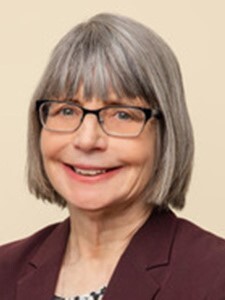
Beth Baker, MD, MPH, FACOEM, FACMT, OEM
Academic Director, School of Public Health
University of Minnesota
Dr. Beth Baker is the Academic Program Director for Occupational and Environmental Medicine at the Midwest Center for Occupational Health and Safety, University of Minnesota School of Public Health. She previously served as the HealthPartners/ U of MN OEM residency program director and lectured in the U of MN OEM course (PubH 6170) since 2006. She has practiced Occupational and Environmental Medicine in the Twin Cities for over 30 years, and is currently on the board of directors of the American Board of Preventive Medicine, a Past President of the American College of Occupational and Environmental Medicine, and a Past Trustee of the Minnesota Medical Association.
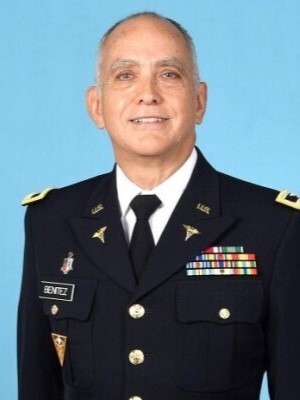
John G. Benitez, MD, MPH
Retired Medical Director of Emergency Preparedness and Environmental Epidemiology
Tennessee State Health Department
Dr. John G. Benitez completed his Medical Doctorate at Southern Illinois University, Springfield, and a Master of Public Health (MPH) degree at University of Pittsburgh. He completed a surgical residency at Southwestern Michigan Area Health Education Center, a hyperbaric medicine “mini-fellowship” at St. Luke's Hospital in Milwaukee, WI, a medical education fellowship at the University of Texas Southwestern Medical Center in Dallas, and completed a fellowship in clinical toxicology at Vanderbilt University. Dr. Benitez is the retired medical director for the emergency preparedness program at the Tennessee State Health Department. Previously, Dr. Benitez was appointed professor of clinical medicine at Vanderbilt University in Nashville where still holds an appointed as adjunct professor. He was also associate professor of clinical emergency medicine, community and preventive medicine, environmental medicine, and pediatrics at the University of Rochester, New York, where he also worked as the managing director of the RA Lawrence Poison and Drug Information Center. From 2000-2008, he was director for regional emergency preparedness at the University of Rochester Medical Center, medical director of the Pittsburgh Poison Center, and director of the multidisciplinary MPH program at the University of Pittsburgh Graduate School of Public Health. He is a member of the National Academies of Science, Engineering, and Medicine’s Committee on Strengthening the Disaster Resilience of Academic Research Communities. Dr. Benitez is also a member of the U.S. Army Reserves, where he holds the rank of Colonel and serves as a Preventive Medical Officer.

John Downs, MD, MPH
Medical Toxicologist
Virginia Commonwealth University (VCU) Health in Richmond, VA
John W. Downs MD MPH is a graduate of the Virginia Military Institute and served two years as a US Army infantry officer, prior to attending medical school at the Uniformed Services University of the Health Sciences (USU). Dr. Downs completed residency training in internal medicine at Tripler Army Medical Center, Honolulu, Hawaii, and in occupational & environmental medicine at USU, where he also completed a Master of Public Health degree. Dr. Downs later completed a fellowship in medical toxicology at the Virginia Commonwealth University (VCU) Health System. Dr. Downs was a US Army officer for more than 20 years and recently joined VCU as medical toxicology faculty. His final active-duty tour was at the Uniformed Services University where he was an Associate Professor and the Associate Program Director for the Occupational and Environmental Medicine residency, and an attending physician at Walter Reed National Military Medical Center. His military medical experience includes multiple tours as senior medical officer to special operations and light infantry units to include deployments to operations in Iraq and Afghanistan. Dr. Downs’s public health experience includes service as Chief of the Department of Preventive Medicine at Fort Campbell, Kentucky, and Chief, Occupational & Environmental Medicine Service, Walter Reed National Military Medical Center during the COVID-19 pandemic. Dr. Downs is board certified as a physician in internal medicine, occupational & environmental medicine, and medical toxicology. Dr. Downs also holds allied health certifications as a certified public health professional (CPH), and Diplomate of the American Board of Toxicology (DABT). Dr. Downs is a recipient of the Army Surgeon General’s 9A Proficiency Designation in occupational and environmental medicine. He has authored more than 25 peer-reviewed publications. He is a Fellow of the American College of Physicians, and the American College of Occupational and Environmental Medicine.
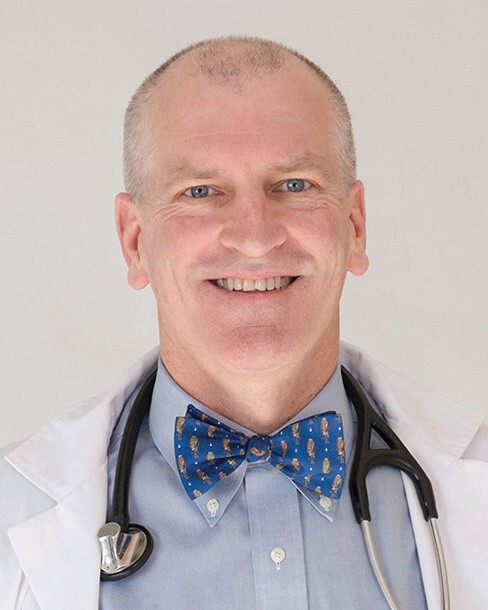
Michael G. Holland, MD, FEAPCCT, FAACT, FACOEM, FACMT, FACEP
Professor of Emergency Medicine
SUNY Upstate Medical University
Dr. Holland is Clinical Professor of Emergency Medicine at SUNY Upstate Medical University in Syracuse, NY where he is on the faculty of the Medical Toxicology Fellowship Training Program and is a Consulting Medical Toxicologist at the Upstate New York Poison Center and the Onondaga County Medical Examiner’s Office-both in Syracuse, NY. Dr. Holland is also the Director of Occupational Medicine for the Saratoga Hospital Medical Group, and is the Saratoga Hospital Employee Health Medical Director, where he oversees the health and safety of over 3100 employees and staff. He also serves as Employee Health Medical Director at Glens Falls Hospital in Glens Falls, NY, covering 2500 employees. He is also Principal Medical Toxicologist at the Center for Toxicology and Environmental Health (CTEH) in Little Rock, AR.

Michael J. Kosnett, MD, MPH, FACMT
Associate Clinical Professor, Department of Medicine
University of Colorado School of Medicine
Michael J. Kosnett, MD, MPH, FACMT has 34 years of experience as a physician specializing in medical toxicology and occupational and environmental health. He is board certified in internal medicine, medical toxicology, and preventive medicine (occupational medicine). He has served in a leadership and advisory capacity to multiple national and international medical and public health organizations. This includes service as past president of the American College of Medical Toxicology and a member of the Committee on Toxicology of the National Academies of Sciences, Engineering, and Medicine and the Board of Scientific Counselors of the National Institute for Occupational Safety and Health. In addition, Dr. Kosnett has served as a consultant and temporary advisor to the World Health Organization; EPA Science Advisory Board expert panels; and advisory committees of the CDC National Center for Environmental Health and ATSDR. He has also served as a medical toxicology consultant to the US Army Public Health Command, the US Air Force Science Advisory Board, and the US Navy Naval Air Systems Command. In 2016, the American College of Medical Toxicology awarded Dr. Kosnett the Matthew J. Ellenhorn Award, a career achievement award that recognizes “extraordinary contributions to the field of medical toxicology.”
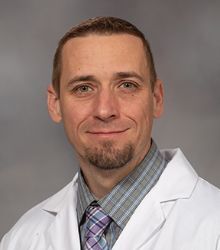
David J. Vearrier, MD, MPH
Professor of Emergency Medicine
University of Mississippi Medical Center
Dr. Vearrier is board-certified in occupational medicine, addiction medicine, medical toxicology, and emergency medicine. He obtained his undergraduate degree from University of California Berkeley in 1996 and his Doctor of Medicine degree from University of California San Diego in 2000. He completed his emergency medicine residency at Drexel University College of Medicine in Philadelphia, PA in 2008 and his medical toxicology fellowship at Drexel in 2010. Dr. Vearrier was core faculty for the emergency medicine residency and medical toxicology fellowship at Albert Einstein Healthcare Network from 2010 to 2011 before returning to Drexel University College of Medicine as core faculty for the emergency medicine residency and the medical toxicology fellowship director from 2011 to 2019. He obtained his Master of Public Health degree at Drexel University School of Public Health in 2013. He completed his occupational medicine residency at University of Pennsylvania in Philadelphia, PA in 2015. Dr. Vearrier came to University of Mississippi Medical Center in 2020 where he serves as chief of the division of medical toxicology and service chief for medical toxicology. He is the associate director for preventive medicine residency, co-medical director of student and employee health, core faculty for the emergency medicine residency, and the institution’s medical review officer. Dr. Vearrier is very active in academic endeavors having published numerous peer-reviewed publications and book chapters, serving as a peer reviewer for journals in the occupational medicine and medical toxicology fields, and serving as a Chief Editor at Medscape.
Registration Rates
Registration includes:
- Access to the live in-person event on Thursday, April 3, 2025
- Access to the on-demand recording for 90 days after the event
- Access to the speaker slides
- Continuing Education credits are available for purchase for an additional fee. Click here for more info.
ACMT Member Rates Early-Bird Expires: Feb 21, 2025
Regular Rate Begins: Feb 22, 2025
Member Tier I: Full, Affiliate, International, Emeritus$250 $300
Member Tier II: Fellows$200 $250
Member Tier III: Residents, International - Developing Country
$125$175
Member IV: Medical Students
$100$150 Non-Member Rates Early-Bird Expires: Feb 21, 2025
Regular Rate Begins: Feb 22, 2025
Non-member Tier I: Physicians, Pharmacists, Lawyers, "Other"
$350$400
Non-member Tier II: Fellows, SPIs, Nurses, etc.
$250$300
Non-member Tier III: Educators & Emergency Responders
$175$225
Non-member IV: Residents & Students
$150$200 Early-Bird Rate
Early-bird rates expire at midnight on FEBRUARY 21, 2025. Fees increase to the Regular Rate after this date, no exceptions.
ACMT Membership
ACMT Members receive a discounted rate. Interested in becoming an ACMT Member? Contact our Membership Team at membership@acmt.net. Learn more at: www.acmt.net/membership
Refunds and Cancellations
Event registration cancellations received on or before February 17, 2025 (2/17/25) will receive a full refund less a 8% processing fee. Cancellations received between February 18, 2025 and March 18, 2025 (2/18/25-3/18/25) will receive a 50% refund. Cancellations made on or after March 19, 2025 (3/19/25) will not receive a refund. All Continuing Education registrations will be refunded in full less an 8% processing fee regardless of date.
All cancellation requests must be made in writing and emailed to: events@acmt.net. No telephone cancellations will be accepted. A refund that results from a cancellation or change to your registration will be returned to the original payer and in the original method of payment.
Pending review, limited exceptions will be made based on need and circumstance and must be submitted in writing to events@acmt.net. Because each exception must undergo a review and approval process, we ask in advance for your patience.
Questions?
For any questions, please email us at events@acmt.net.
Continuing Education

Continuing Education credit for this activity is available for an additional fee.
Accreditation is provided by AKH Inc., Advancing Knowledge in Healthcare, and registrants will be able to claim up 7.0 credits, commensurate with their participation.
Available Continuing Educations Credits:
- Continuing Medical Education (CME)
- Continuing Pharmacist Education (CPE)
- Continuing Nursing Education (CNE)
-
Register
- Early bird pricing available!
- Non-member - Tier I - $350
- Non-member - Tier II - $250
- Non-member - Tier III - $175
- Non-member - Tier IV - $150
- Member - Tier I - $300
- Member - Tier II - $250
- Member - Tier III - $175
- Member - Tier IV - $150
- Regular Price after 02/21/2025 11:59 PM
- Non-member - Tier I - $400
- Non-member - Tier II - $300
- Non-member - Tier III - $225
- Non-member - Tier IV - $200
- Member - Tier I - $250
- Member - Tier II - $200
- Member - Tier III - $125
- Member - Tier IV - $75
- More Information
-
Contains 3 Component(s) Includes a Live In-Person Event on 04/02/2025 at 11:45 AM (PDT)CE Credit available
April 2, 2025
2025 AACT Symposium
April 2, 2025
Fairmont Hotel, Vancouver CanadaJoin the American Academy of Clinical Toxicology on Wednesday, April 2, 2025 for the AACT Symposium. Topic to be announced soon!
AACT Member Discount AACT Members are eligible to receive the same registration rate as ACMT Members for this activity. Just enter the following code at checkout -- a $50 savings! Discount code: AACT2025
Questions?
Please write to ACMT at events@acmt.net
Registration Rates
Registration includes:
- Access to the live in-person event on Wednesday, April 2, 2025
- Access to the on-demand recording for 90 days after the event
- Access to the speaker slides
- Continuing Education credits are available for purchase for an additional fee. Click here for more info.
ACMT Member Rates Early-Bird Expires: Feb 21, 2025
Regular Rate Begins: Feb 22, 2025
Member Tier I: Full, Affiliate, International, Emeritus$175 $225
Member Tier II: Fellows$125 $175
Member Tier III: Residents, International - Developing Country
$75$125
Member IV: Medical Students
$50$100 Non-Member Rates Early-Bird Expires: Feb 21, 2025
Regular Rate Begins: Feb 22, 2025
Non-member Tier I: Physicians, Pharmacists, Lawyers, "Other"
$225$275
Non-member Tier II: Fellows, SPIs, Nurses, etc.
$175$225
Non-member Tier III: Educators & Emergency Responders
$125$175
Non-member IV: Residents & Students
$100$150 Early-Bird Rate
Early-bird rates expire at midnight on FEBRUARY 21, 2025. Fees increase to the Regular Rate after this date, no exceptions.
Membership Discounts
ACMT Members receive a discounted rate. Interested in becoming an ACMT Member? Contact our Membership Team at membership@acmt.net. Learn more at: www.acmt.net/membership
AACT Members are eligible to receive the same registration rate as ACMT Members for this activity. Just enter the following code at checkout -- a $50 savings! Discount code: AACT2025
Refunds and Cancellations
Event registration cancellations received on or before February 17, 2025 (2/17/25) will receive a full refund less a 8% processing fee. Cancellations received between February 18, 2025 and March 18, 2025 (2/18/25-3/18/25) will receive a 50% refund. Cancellations made on or after March 19, 2025 (3/19/25) will not receive a refund. All Continuing Education registrations will be refunded in full less an 8% processing fee regardless of date.
All cancellation requests must be made in writing and emailed to: events@acmt.net. No telephone cancellations will be accepted. A refund that results from a cancellation or change to your registration will be returned to the original payer and in the original method of payment.
Pending review, limited exceptions will be made based on need and circumstance and must be submitted in writing to events@acmt.net. Because each exception must undergo a review and approval process, we ask in advance for your patience.
Questions?
For any questions, please email us at events@acmt.net.
Continuing Education

Continuing Education credit for this activity is available for an additional fee.
Accreditation is provided by AKH Inc., Advancing Knowledge in Healthcare, and registrants will be able to claim up 5.0 credits, commensurate with their participation.
Available Continuing Educations Credits:
- Continuing Medical Education (CME)
- Continuing Pharmacist Education (CPE)
- Continuing Nursing Education (CNE)
-
Register
- Early bird pricing available!
- Non-member - Tier I - $225
- Non-member - Tier II - $175
- Non-member - Tier III - $125
- Non-member - Tier IV - $100
- Member - Tier I - $175
- Member - Tier II - $125
- Member - Tier III - $75
- Member - Tier IV - $50
- Regular Price after 02/21/2025 11:59 PM
- Non-member - Tier I - $275
- Non-member - Tier II - $225
- Non-member - Tier III - $175
- Non-member - Tier IV - $150
- Member - Tier I - $225
- Member - Tier II - $175
- Member - Tier III - $125
- Member - Tier IV - $100
- More Information
-
Contains 4 Component(s) Includes a Live Web Event on 12/19/2024 at 1:00 PM (EST)
Cases to be announced.
National Case Conference
Cases to be announced.
Series Moderator: Lewis Nelson, MD, FACMT, Rutgers New Jersey Medical School, Newark, NJ
About The Series: ACMT's National Case Conference (NCC) is a monthly webinar for ACMT members that features interesting cases seen by medical toxicologists nationwide. NCC is an educational endeavor and a quality improvement effort intended to improve patient care. It is not intended to define standard of care. Attempts have been made to ensure HIPAA compliance. All data and information provided in this activity is for informational purposes only. ACMT makes no representations as to accuracy, completeness, currentness, suitability, or validity of the content and will not be liable for any errors or omissions in this information or any losses, injuries, or damages arising from its display or use.
This webinar is for ACMT members only.
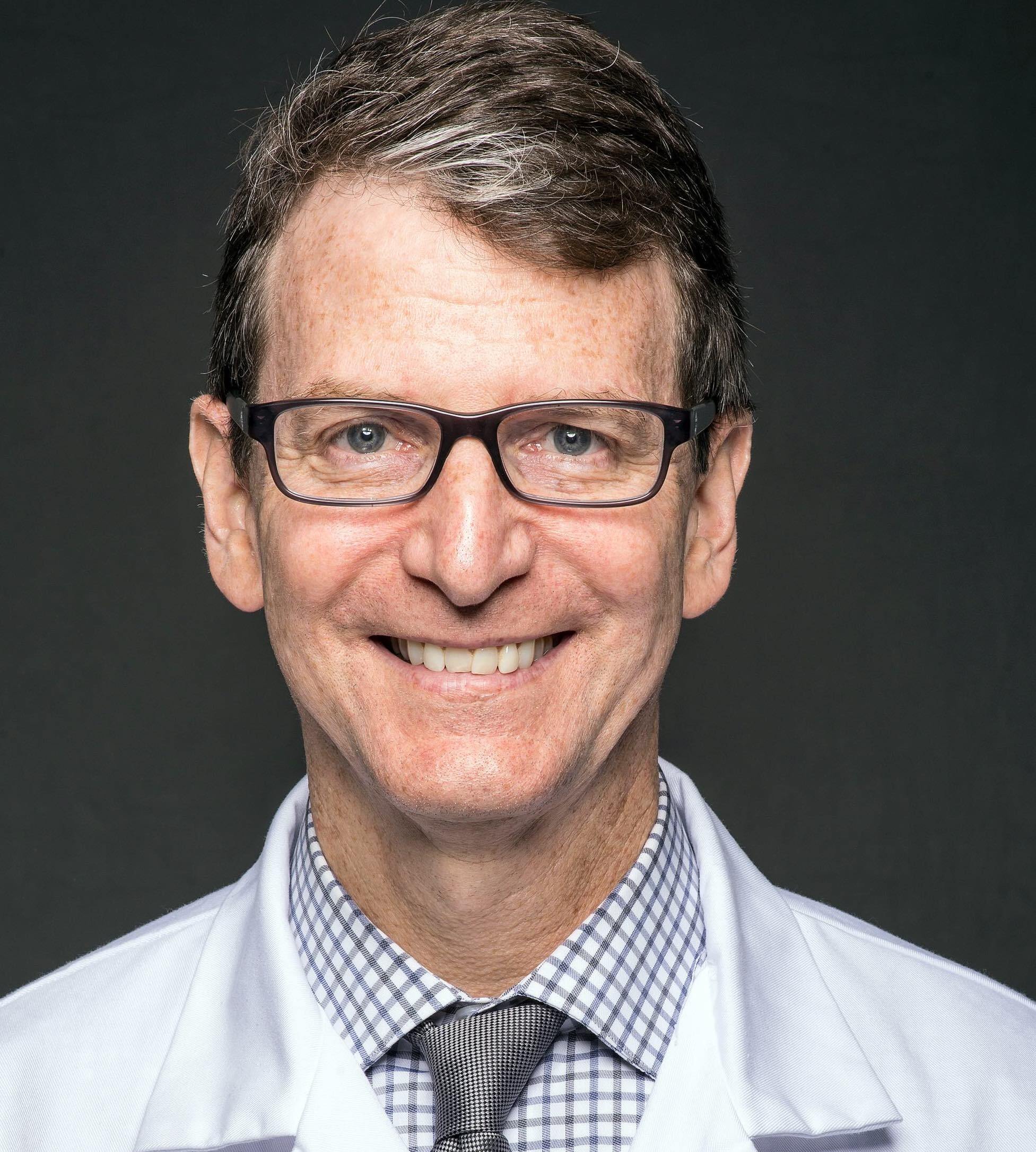
Lewis Nelson, MD, MBA, FACMT, FASAM
Chair of Emergency Medicine
Rutgers New Jersey Medical School
Lewis S. Nelson, MD is Professor and Chair of the Department of Emergency Medicine at Rutgers New Jersey Medical School, Chief of Service for the Emergency Department at University Hospital of Newark, and Senior Consultant to the New Jersey Poison Information & Education System. Dr. Nelson is board certified in emergency medicine, medical toxicology, and addiction medicine. His areas of specific interest include preventing and managing the consequences of opioid and other substance use, multimodal pain management strategies, health policy, and medication safety.
Dr. Nelson has served as President of American College of Medical Toxicology and on the Board of Directors of both the American Board of Emergency Medicine and the Accreditation Council for Continuing Medical Education. He is currently the president of Association of Academic Chairs in Emergency Medicine. He is a long time consultant for several governmental agencies including the Centers for Disease Control and Prevention, the Department of Homeland Security, and the Food and Drug Administration. He is an editor of the textbook “Goldfrank’s Toxicologic Emergencies.-
Register
- Member - Tier I - Free!
- Member - Tier II - Free!
- Member - Tier III - Free!
- Member - Tier IV - Free!
- More Information
-
Register
-
Contains 4 Component(s) Includes a Live Web Event on 12/10/2024 at 12:00 PM (EST)
Camp Lejeune Water Contamination
Camp Lejeune Water Contamination
Presenter: John Downs, MD, MPH, Associate Professor and Associate Program Director, Occupational & Environmental Medicine Residency, Uniformed Services University, Bethesda, MD
Learning Objectives
- To be announced
About The Series: ACMT's Grand Rounds offer an in-depth and interactive platform for learning and discussion about issues that impact the research and practice of medical toxicology. Experts from within and outside medical toxicology will share their knowledge and experience and highlight areas for collaboration and mutual understanding.
This webinar is for ACMT members only.

John Downs, MD, MPH
Medical Toxicologist
Virginia Commonwealth University (VCU) Health in Richmond, VA
John W. Downs MD MPH is a graduate of the Virginia Military Institute and served two years as a US Army infantry officer, prior to attending medical school at the Uniformed Services University of the Health Sciences (USU). Dr. Downs completed residency training in internal medicine at Tripler Army Medical Center, Honolulu, Hawaii, and in occupational & environmental medicine at USU, where he also completed a Master of Public Health degree. Dr. Downs later completed a fellowship in medical toxicology at the Virginia Commonwealth University (VCU) Health System. Dr. Downs was a US Army officer for more than 20 years and recently joined VCU as medical toxicology faculty. His final active-duty tour was at the Uniformed Services University where he was an Associate Professor and the Associate Program Director for the Occupational and Environmental Medicine residency, and an attending physician at Walter Reed National Military Medical Center. His military medical experience includes multiple tours as senior medical officer to special operations and light infantry units to include deployments to operations in Iraq and Afghanistan. Dr. Downs’s public health experience includes service as Chief of the Department of Preventive Medicine at Fort Campbell, Kentucky, and Chief, Occupational & Environmental Medicine Service, Walter Reed National Military Medical Center during the COVID-19 pandemic. Dr. Downs is board certified as a physician in internal medicine, occupational & environmental medicine, and medical toxicology. Dr. Downs also holds allied health certifications as a certified public health professional (CPH), and Diplomate of the American Board of Toxicology (DABT). Dr. Downs is a recipient of the Army Surgeon General’s 9A Proficiency Designation in occupational and environmental medicine. He has authored more than 25 peer-reviewed publications. He is a Fellow of the American College of Physicians, and the American College of Occupational and Environmental Medicine.
-
Register
- Member - Tier I - Free!
- Member - Tier II - Free!
- Member - Tier III - Free!
- Member - Tier IV - Free!
- More Information
-
Contains 4 Component(s) Includes a Live Web Event on 11/21/2024 at 1:00 PM (EST)
Cases to be announced.
National Case Conference
Cases to be announced.
Series Moderator: Lewis Nelson, MD, FACMT, Rutgers New Jersey Medical School, Newark, NJ
About The Series: ACMT's National Case Conference (NCC) is a monthly webinar for ACMT members that features interesting cases seen by medical toxicologists nationwide. NCC is an educational endeavor and a quality improvement effort intended to improve patient care. It is not intended to define standard of care. Attempts have been made to ensure HIPAA compliance. All data and information provided in this activity is for informational purposes only. ACMT makes no representations as to accuracy, completeness, currentness, suitability, or validity of the content and will not be liable for any errors or omissions in this information or any losses, injuries, or damages arising from its display or use.
This webinar is for ACMT members only.

Lewis Nelson, MD, MBA, FACMT, FASAM
Chair of Emergency Medicine
Rutgers New Jersey Medical School
Lewis S. Nelson, MD is Professor and Chair of the Department of Emergency Medicine at Rutgers New Jersey Medical School, Chief of Service for the Emergency Department at University Hospital of Newark, and Senior Consultant to the New Jersey Poison Information & Education System. Dr. Nelson is board certified in emergency medicine, medical toxicology, and addiction medicine. His areas of specific interest include preventing and managing the consequences of opioid and other substance use, multimodal pain management strategies, health policy, and medication safety.
Dr. Nelson has served as President of American College of Medical Toxicology and on the Board of Directors of both the American Board of Emergency Medicine and the Accreditation Council for Continuing Medical Education. He is currently the president of Association of Academic Chairs in Emergency Medicine. He is a long time consultant for several governmental agencies including the Centers for Disease Control and Prevention, the Department of Homeland Security, and the Food and Drug Administration. He is an editor of the textbook “Goldfrank’s Toxicologic Emergencies.-
Register
- Member - Tier I - Free!
- Member - Tier II - Free!
- Member - Tier III - Free!
- Member - Tier IV - Free!
- More Information
-
Register
-
Contains 5 Component(s), Includes Credits Includes a Live Web Event on 11/15/2024 at 8:50 AM (EST)CE Credit available
Methemglobinemia, Heavy metals, Hydrocarbons, Ethanol, Methanol, Marine, Reptiles, Arthropods, Mushrooms, Herbicides, insecticides and more!
#TotalTox2024
The last live, virtual session of the Total Tox Course will focus on Non-Pharmaceuticals.
This session will include discussions of toxicology of plants and mushrooms, and reptile, marine, and arthropod envenomations. Experts will also cover anesthetic toxicity, malignant hyperthermia, and methemoglobinemia. Gain expertise in managing heavy metal poisoning and the complexities of ethanol and toxic alcohol intoxication. Participate in interactive case panels on novel treatments for critically ill patients and evaluation of an unknown potential toxicology issue, bringing together all your knowledge from the Total Tox Course.
Learner Objectives
After attending the event, participants should be able to:
- Identify non-pharmaceutical poisons found in various locations including home, cabinet, garage, and yard.
- Discuss current and emerging management options for ethanol intoxication, withdrawal, and use disorder.
- Examine other toxicological concerns including heavy metals, methemoglobin-forming agents, toxic hyperthermia, and venomous creatures
Questions?
Please write to ACMT at events@acmt.net
Preliminary Agenda | Session 3 - November 15, 2024
8:50 - 9:00 AM ET | Opening Remarks
9:00 - 9:30 AM ET
Hospital Hazards #1: Anesthetic Toxicity & Malignant Hyperthermia
Shaun D. Carstairs, MD, FACMT Medical Toxicologist, 98point6, Inc., Seattle, WADr. Carstairs will discuss the history and pharmacology of local anesthetics and the unique characteristics and common clinical use for each prototypical local anesthetic. He will assess the most commonly caused several complications of local anesthetics and identifies general thermoregulatory principles. He will also review the following hyperthermic syndromes & discusses treatment options: Serotonin Syndrome, Neuroleptic Malignant Syndrome, and Malignant Hyperthermia.
9:30 - 10:00 AM ET
Hospital Hazards #2: Methemoglobinemia
Andrea Carlson, MD Emergency Medicine Physician, Advocate Christ Medical Center, Oak Lawn, ILDr. Carlson will discuss the common agents causing Methemoglobinemia. She will identify methemoglobinemia mechanisms of toxicity and describe the best practices in clinical management of methemoglobinemia.
10:00 - 10:30 AM ET
Heavy Metals In the ED: Lead, Arsenic & Mercury
Evan Schwarz, MD, FACMT, FASAM, FACEP Medical Toxicology Fellowship Director, University of California, Los Angeles, Los Angeles, CADr. Schwarz will review the signs and symptoms of lead toxicity. He will discuss the role of chelation in heavy metal toxicity and compare and contrast the toxicity caused by different forms of mercury.
10:30 - 10:45 AM ET | Break (15 min)
10:45 - 11:45 AM ET
Case Panel: Novel Treatments for the Crashing PatientSeveral speakers from previous lectures will return to review clinical cases.
11:45 - 12:30 PM ET
Ethanol Intoxication: Too Much Of a Good Thing
Anthony Pizon, MD, FACMT Chief of Medical Toxicology Division, Professor of Emergency Medicine, University of Pittsburgh, Pittsburgh, PADr. Pizon will examine the prevalence of ethanol AUD in patients presenting to the Emergency Department. He will also discuss the genetic vs. environmental factors for ethanol AUD and assess the most critical laboratory tests for symptomatic patients who have suspected ethanol intoxication.
12:30 - 1:15 PM ET
When It's Not Ethanol: Demystifying Toxic Alcohols
Bram Dolcourt, MD Clinical Assistant Professor Department of Emergency Medicine, Wayne State University, Detroit, MIDr. Dolcourt will describe toxicity & time course of methanol (MeOH) and ethylene glycol (EthGly) exposures, identify two stand-in tests for MeOH and EthGly, noting limitations, and present a rationale for treatment with ethanol, fomepizole, and/or hemodialysis.
1:15 - 1:45 PM ET | Break (30 min)
1:45 - 2:15 PM ET
Ethanol Withdrawal: When the Good Times End
Jerrold Blair Leikin, MD, FACP, FACEP, FACMT, FAACT, FACOEM, FASAM Adjunct Clinical Professor Division of Environmental and Occupational Health Sciences & Professor of Medicine, University of Illinois Chicago and Rosalind Franklin University of Medicine & Science, North Chicago, ILDr. Leikin will discuss appropriate treatment so that complications are prevented. He will examine alcohol withdrawal symptoms and describe the principles of detoxification.
2:15 - 2:45 PM ET
Don't Touch That! Marine, Arthropod & Reptile Envenomations
Michael Levine, MD, FACMT Associate Professor of Emergency Medicine, University of California Los Angeles, Los Angeles, CADr. Levine will identify various toxic envenomations and describe the characterization of Black Widow envenomation and management options. He will also discuss management options for pit viper envenomations.
2:45 - 3:15 PM ET
The Toxic Yard
Fiona Garlich Horner, MD Head of Toxicology & Assistant Professor of Clinical Emergency Medicine, LAC+USC Medical Center & University of Southern California Keck School of Medicine, Los Angeles, CADr. Garlich Horner will examine different classes of plant derived toxins and their effects on humans and identify hazards of different mushrooms and clinical toxidromes associated with mushrooms.
3:15 - 3:45 PM ET
The Toxic House
Ashley Haynes, MD, FACEP Medical Director, Addiction Toxicology of Kansas, Wichita, KSDr. Haynes will discuss common household exposures and their implications and review the toxicity of common household cleaners and toys.
3:45 - 4:00 PM ET | Break (20 min)
4:00 - 4:30 PM ET
The Toxic Cabinet
Stephen Wood, MS, ACNP-BC, FEWM Acute Care Nurse Practitioner & Director of Advanced Practice Providers, St. Elizabeth’s Medical Center, Brighton, MANurse Practitioner Wood will review toxicity of essential oils and examine the risks associated with the use of dietary supplements.
4:30 - 5:00 PM ET
The Toxic Garage
Andrew King, MD Associate Professor in the Department of Emergency Medicine & Medical Director, Wayne State University School of Medicine & Michigan Poison and Drug Information Center, Detroit, MIDr. King will discuss common toxins and exposures of chemicals commonly found in the garage. He will also review toxicity and management of chemicals and other substances commonly found in the garage.
5:00 - 5:30 PM ET
Case PanelSeveral speakers from previous lectures will return to review clinical cases.
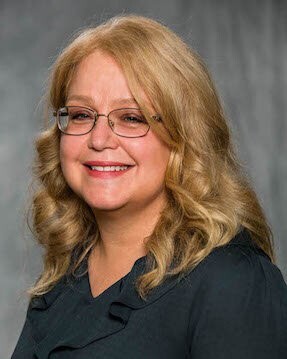
Andrea Carlson, MD
Emergency Medicine Physician
Advocate Christ Medical Center
Dr. Andrea Carlson is an attending physician in Emergency Medicine at Advocate Christ Medical Center in Oak Lawn, IL, where she has served the patients of Chicago's South Side for 25 years. She is also the Director of Medical Toxicology, and the Associate Program Director of the Advocate Christ Emergency Medicine Residency. Her primary academic interests lie in toxicology education and critical care toxicology.
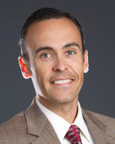
Shaun D. Carstairs, MD, FACMT
Medical Toxicologist
98point6, Inc.
Dr. Carstairs earned his undergraduate degree from the California Institute of Technology in Pasadena, CA and received his medical degree from the Uniformed Services University of the Health Sciences (USU), the nation's military medical school. He completed a residency in emergency medicine at the Naval Medical Center in San Diego and a fellowship in medical toxicology at the University of California, San Diego. He served more than 25 years on active duty in the U.S. Navy, which included a combat deployment to Iraq and shipboard deployment as the leader of a mobile trauma team for the Navy’s Pacific Fleet. He retired from the Navy as a Captain in 2019. He currently serves as a faculty member in the Department of Emergency Medicine & Division of Medical Toxicology at the University of California, San Diego (UCSD). In addition to his role at UCSD, he holds an appointment as Professor of Military & Emergency Medicine at USU.
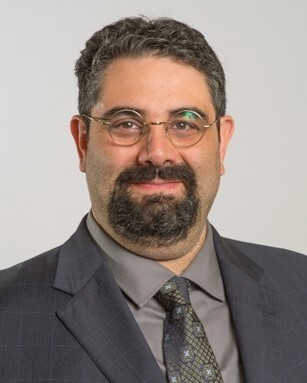
Bram Dolcourt, MD
Clinical Assistant Professor Department of Emergency Medicine
Wayne State University
Bram Dolcourt is Assistant Professor of Emergency Medicine at Wayne State University and serves as Associate Residency Director for Emergency Medicine at Sinai Grace Hospital in Detroit. Dr. Dolcourt is a Clinical Consultant to the Michigan Poison and Drug Information Center. Dr Dolcourt complete Medical School at New York Medical College and residency at Henry Ford Hospital. Dr. Dolcourt then went on to complete fellowship in Medical Toxicology at the Children’s Hospital of Michigan. Dr. Dolcourt’s interests include inpatient addiction medicine and heavy metal exposures.
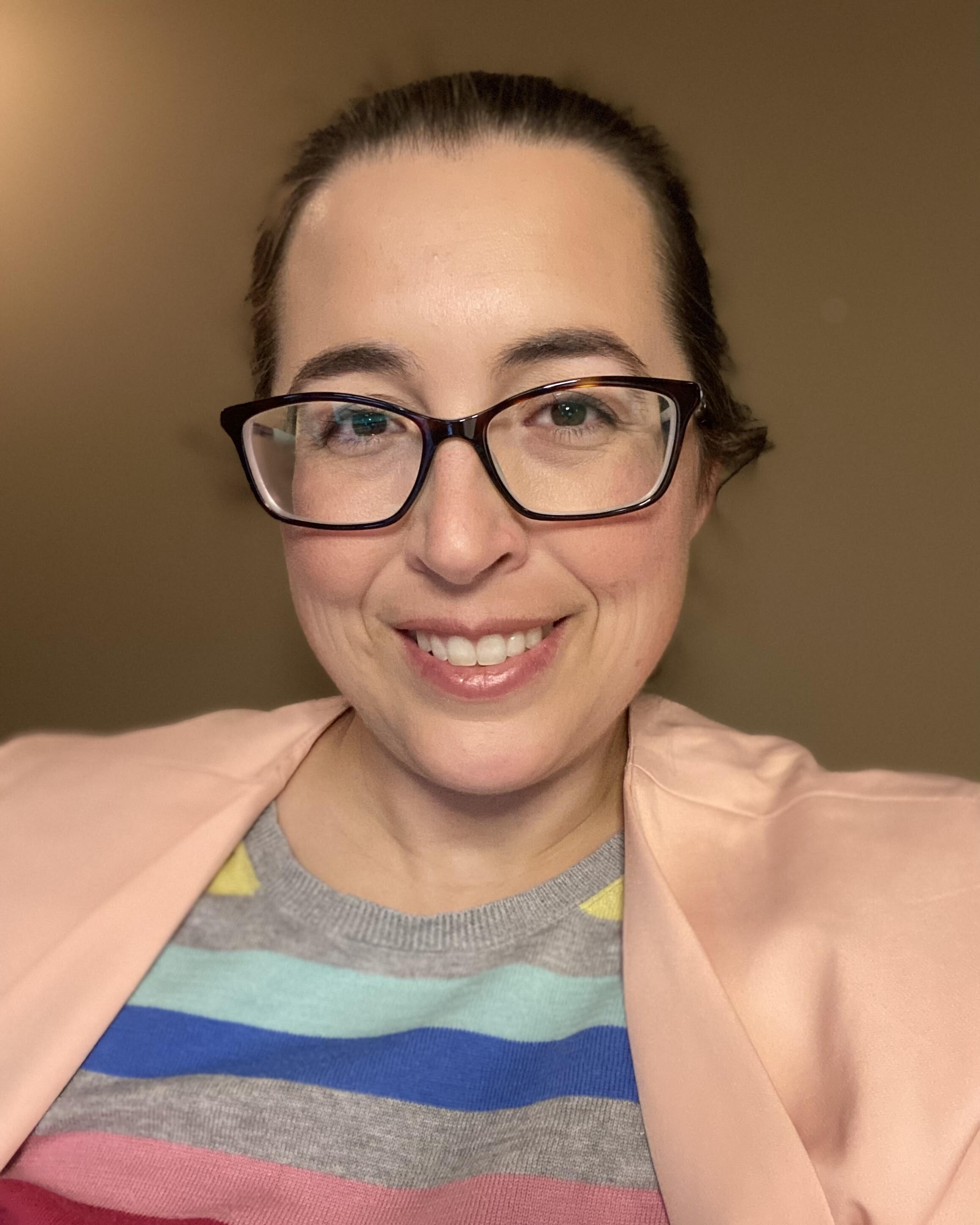
Ashley Haynes, MD, FACEP
Medical Toxicologist, Addiction Medicine Specialist
Veterans Health Administration
Dr. Haynes completed training in a combined emergency medicine-internal medicine program in 2014, and a toxicology fellowship at UTSW in 2016. She has been treating substance use disorders as part of her practice since that time and is board certified in addition medicine. She currently works for the VA at the Robert J Dole Veterans Medical Center in Wichita, KS, treating patients in a residential treatment center, as well as clinic, and performing bedside consults.
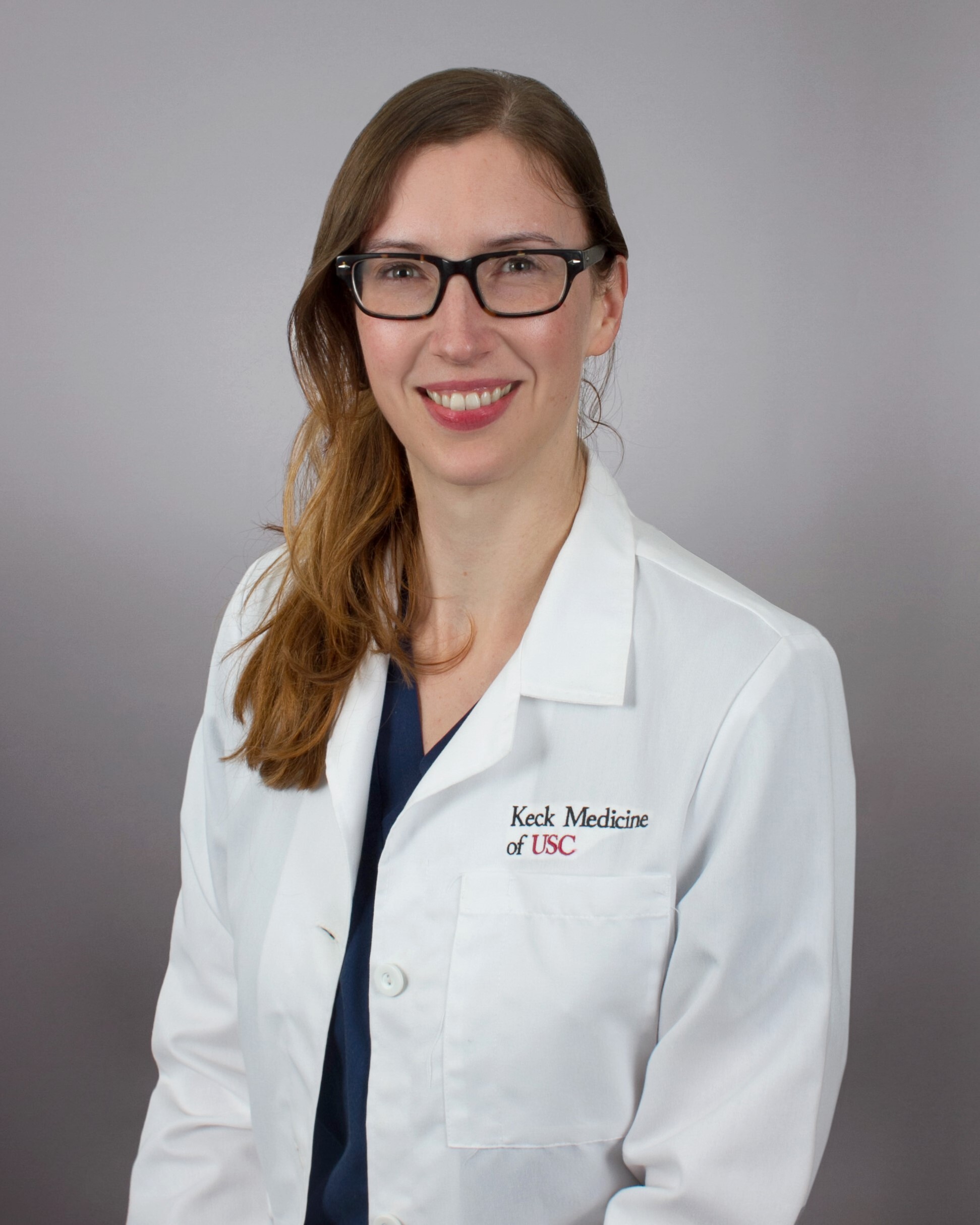
Fiona Garlich Horner, MD
Head of Toxicology & Assistant Professor of Clinical Emergency Medicine
LAC+USC Medical Center & University of Southern California Keck School of Medicine
Dr Fiona Garlich Horner is the Head of Medical Toxicology at Los Angeles County + University of Southern California (LAC+USC) Medical Center, and an Assistant Professor of Clinical Emergency Medicine at the University of Southern California Keck School of Medicine. She is a graduate of Oregon Health Sciences University School of Medicine in Portland, Oregon, and completed her residency in Emergency Medicine at Hennepin County Medical Center in Minneapolis, Minnesota. After completing a fellowship in Medical Toxicology at New York University and the New York City Poison Control Center, she served as an attending emergency physician and medical toxicologist with the Poison and Drug Information Service (PADIS) in Calgary, Alberta, Canada.
Dr. Garlich is now an attending emergency physician and medical toxicologist at LAC+USC Medical Center in Los Angeles, California, one of the largest and busiest public hospitals in the United States. She is the director of the inpatient toxicology consultation service and the resident toxicology rotation, as well as the chair of the hospital’s medication safety committee. Her primary academic interests lie in toxicology education and advancing the care of vulnerable and incarcerated populations.
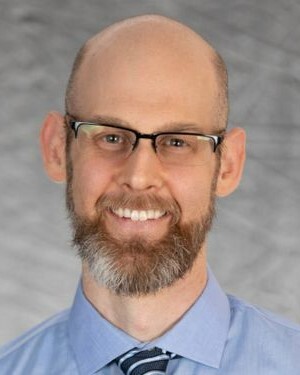
Andrew King, MD
Associate Professor in the Department of Emergency Medicine & Medical Director
Wayne State University School of Medicine & Michigan Poison and Drug Information Center
Dr. King is an Emergency medicine physician, Medical Toxicologist and Addiction Medicine specialist at the Detroit Medical Center and Wayne State University. He works as an emergency physician at Sinai Grace and Detroit Receiving Hospitals. He additionally works at the Tolan Park Research Center where he sees patients with substance use disorders. He is the interim director of the Michigan Poison and Drug Information Center and the Fellowship Director of the Medical Toxicology Fellowship. He is excited to be an organizer and presenter at the Total Tox Course!
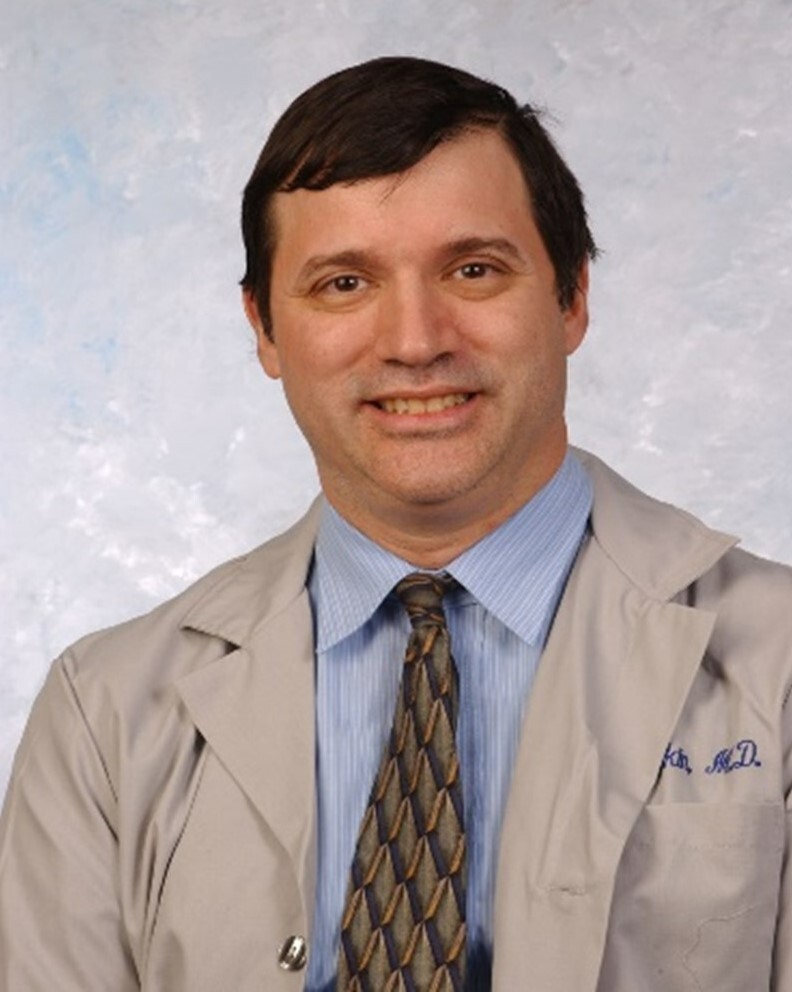
Jerrold Blair Leikin, MD, FACP, FACEP, FACMT, FAACT, FACOEM, FASAM
Adjunct Clinical Professor Division of Environmental and Occupational Health Sciences & Professor of Medicine
University of Illinois Chicago and Rosalind Franklin University of Medicine & Science
I am a currently Adjunct Clinical Professor on the Division of Environmental and Occupational Health Sciences and the Occupational and Environmental Medicine Service of UI Health at the University of Illinois at Chicago and Professor of Medicine at Rosalind Franklin University of Medicine & Science in North Chicago, Ill.
In 1980, I received my medical degree from the Chicago Medical School. I then completed a combined residency in Internal Medicine and Emergency Medicine at Northwestern University (1984) followed by a three-year preceptorship/fellowship training in Medical Toxicology at Cook County Hospital and University of Illinois Hospital in Chicago, Illinois. I am Board Certified in Internal Medicine, Emergency Medicine, Medical Toxicology and Addiction Medicine.
I served as the Associate Director of the Emergency Department at Rush Presbyterian-St. Luke’s Medical Center in Chicago from 1998-2001. During this time, I was also the Medical Director of the Rush Poison Control Center and served as Medical Director of the United States Drug Testing Laboratory (from 1991 -1996). I was also the Medical Director of PROSAR (located in St. Paul, MN); a national call center devoted to industrial exposures and product safety issues, up until December 2013.
I have presented over 200 research abstracts at national meetings (primarily to the North American Congress of Clinical Toxicology) and have published over 200 articles in peer-reviewed medical journals. I am the co-editor of the Poisoning and Toxicology Handbook (now in its fourth edition), published by CRC Press, and the American Medical Association Handbook of First Aid and Emergency Care, and published by Random House (New York). I am also the co-editor with Dr. Robin McFee for the Toxico-terrorism book (McGraw Hill) and the Handbook of Nuclear, Biological and Chemical Agent Exposure (CRC Press) both published in 2007. I was also the co-editor of the American Medical Association Complete Medical Encyclopedia, published by Random House in 2003. I am presently the Editor-in-Chief of the primary care journal, Disease-a-Month, published by Elsevier. I was on the Illinois State Board of Health from 2016 – 2019.
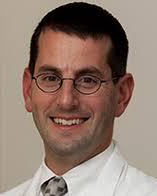
Michael Levine, MD, FACMT
Co-Division Chief of Medical Toxicology
University of California, Los Angeles
Michael Levine is a Los Angeles native, who completed his emergency medicine residency at the Harvard Affiliated Emergency Medicine program, based out of Brigham and Women’s Hospital and Massachusetts General Hospital. After residency, he completed his medical toxicology fellowship at Banner Good Samaritan Medical Center in Phoenix, AZ. After staying as faculty for a year in Phoenix, he moved back to Los Angeles, where he joined the faculty at USC. He is currently the division chief of medical toxicology. He is actively involved in patient care, research, and serves on numerous hospital and university committees. He is an active member of American College of Emergency Physicians, the American College of Medical Toxicology, and is a member of the Toxicology Investigator's Consortium.
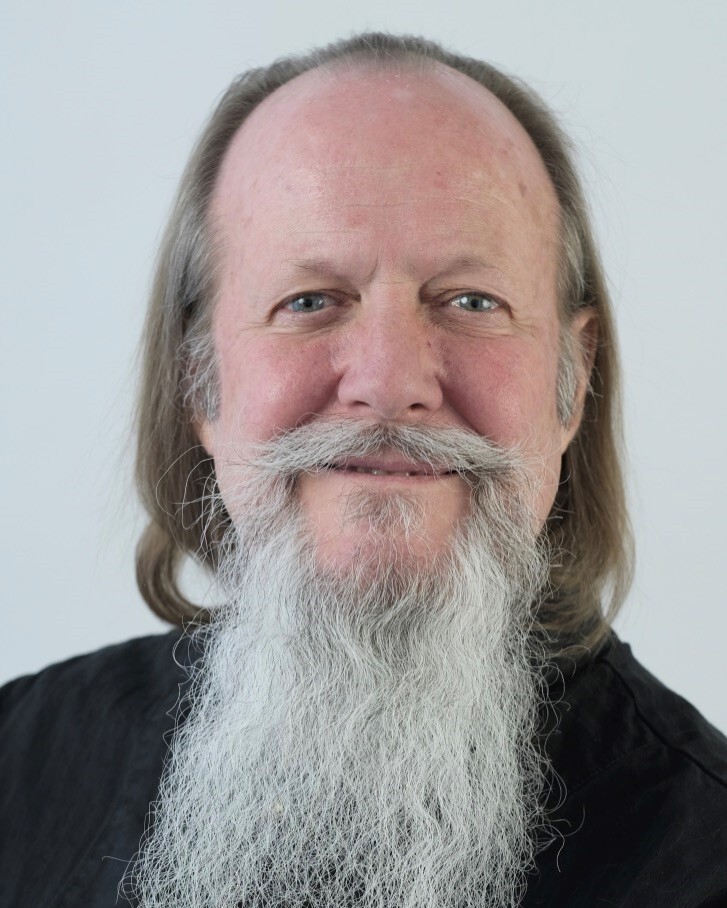
Howard McKinney, PharmD, DABAT, FAACT
Secretary-Treasurer
American Board of Applied Toxicology & North American Society of Toxinology
Dr McKinney graduated in 1971 from the University of California San Diego, Revelle College with a Bachelor of Arts degree (BA), Biology major, Spanish Literature minor.
In 1978 he graduated from UCSF School of Pharmacy with a Doctor of Pharmacy degree (PharmD), and was recruited to be a founding staff member of the San Francisco Poison Center, where he worked until 1992.
In 1992 he passed the Boards to become a Diplomate of the American Board of Applied Toxicology DABAT), and was hired as a Clinical Pharmacist in Critical Care at Univ Calif Davis Medical Center in Sacramento California (UCDMC).
In 2018 he was approved as a Fellow of the American Academy of Clinical Toxicology (FAACT), and retired from UCDMC. He continues his work as Secretary-Treasurer of ABAT and NAST (North American Society of Toxincology), as well as his love of herpetology, hiking, photography, videography and music.
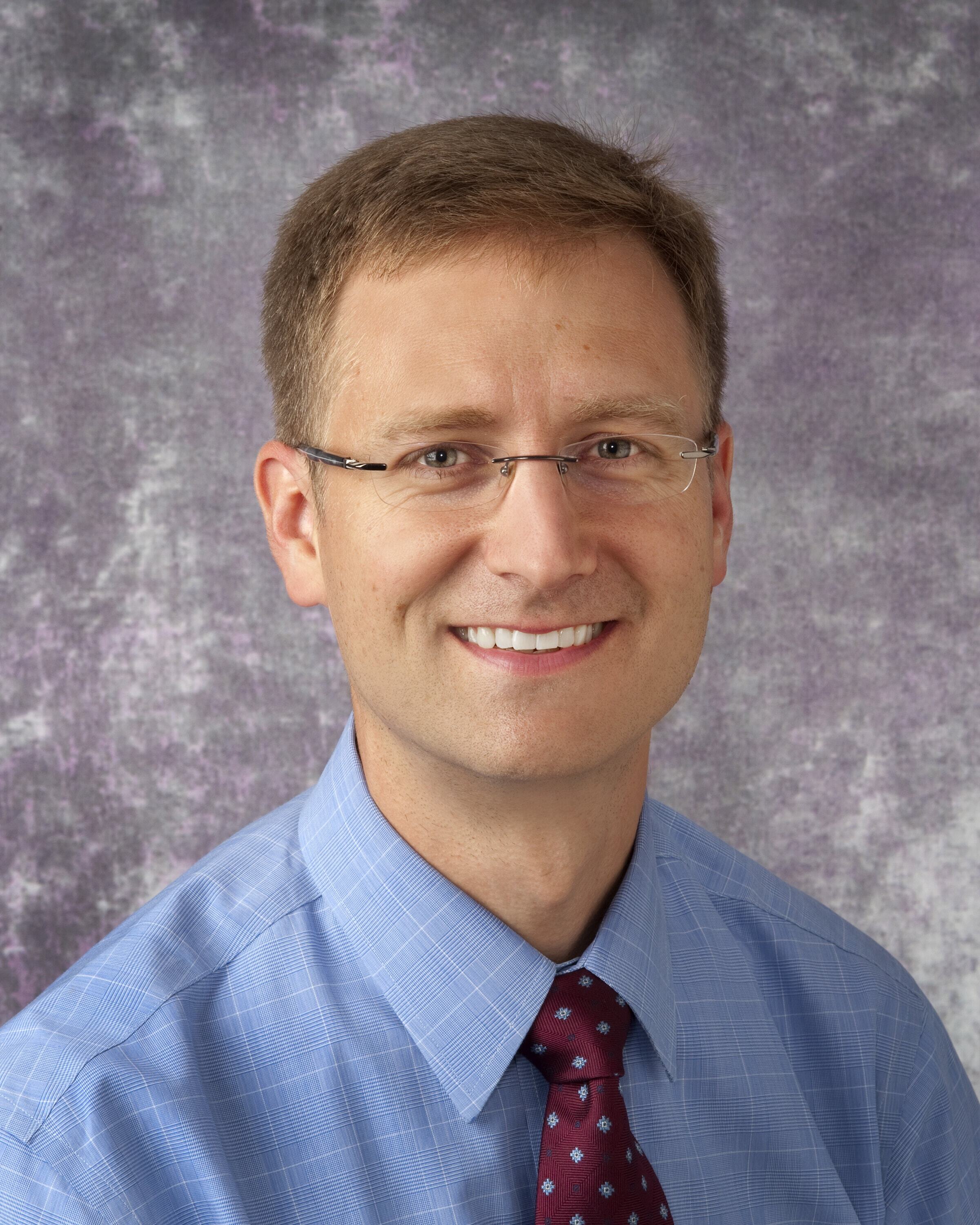
Anthony Pizon, MD, FACMT
Chief of Medical Toxicology Division, Professor of Emergency Medicine
University of Pittsburgh
Dr. Anthony (Tony) Pizon received his medical degree from the University of Toledo School of Medicine in 2001. He then completed his Emergency Medicine Residency at the University of Pittsburgh Medical Center in 2004 and his Medical Toxicology Fellowship at Banner Good Samaritan Medical Center in Phoenix, Arizona in 2006. Dr. Pizon is currently a Professor in the Department of Emergency Medicine, Division of Medical Toxicology at the University of Pittsburgh, School of Medicine. He serves as Chief of the Division of Medical Toxicology and Director of the Medical Toxicology Fellowship at UPMC. He is also Assistant Medical Director of both the Pittsburgh and West Virginia Poison Centers. Yet, most importantly, he is blessed with amazing wife, Caryn, and four wonderful children (Benjamin, Elizabeth, Gabriela, and Seraphina).
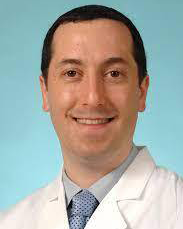
Evan Schwarz, MD, FACMT
Associate Professor of Emergency Medicine
University of California, Los Angeles
Dr. Schwarz attended medical school at the University of Texas Medical Branch in Galveston, Texas, before completing a residency in Emergency Medicine at the Washington University School of Medicine in Saint Louis, Missouri. After residency, he completed a fellowship in Medical Toxicology at the University of Texas Southwestern School of Medicine in Dallas, Texas, before returning to Missouri where he was an Advisory Dean and the Medical Toxicology Division Chief and Fellowship Director at Washington University. In 2023, he took a position in the Department of Emergency Medicine at the University of California Los Angeles. He is also a member of the Board of Directors for ACMT.
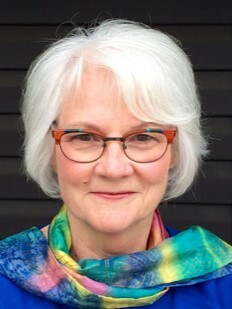
Donna Seger, MD, FAACT, FACMT
Professor Emeritus
Department of Medicine, Vanderbilt University Medical Center
Donna Seger, MD, retired in December 2021 after working for 33 years at Vanderbilt University Medical Center and the Tennessee Poison Center (TPC). Dr. Seger began her career at VUMC in 1988 in the Department of Emergency Medicine, becoming professor of Clinical Medicine and Emergency Medicine. She served as medical and executive director of the Tennessee Poison Center from 1990-2021. Seger received her undergraduate and medical degrees from University of North Dakota, Grand Forks. She completed her residency in emergency medicine and a fellowship in toxicology at the University of Cincinnati. Seger taught toxicology courses at Vanderbilt and developed consulting services and toxicology rotations for emergency medicine and pediatric residents and fellows and pediatric emergency medicine fellows. She was the first female president of the American Academy of Clinical Toxicology (AACT) and received its Career Achievement Award and Distinguished Service Award for her achievements in the field of toxicology. While retired from active clinical practice, she plans to remain active in the toxicology community.
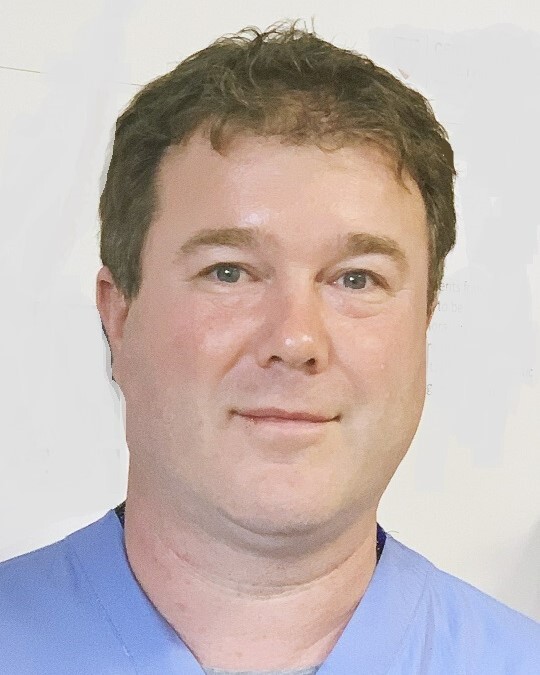
Stephen Wood, MS, ACNP-BC, FEWM
Acute Care Nurse Practitioner & Director of Advanced Practice Providers
St. Elizabeth’s Medical Center
Stephen P. Wood is an acute care nurse practitioner and director of advanced practice providers in the division of pulmonary and critical care medicine at St. Elizabeth’s Medical Center. Prior to this he spent 11 years practicing as a nurse practitioner in emergency medicine. His roots are in EMS and he has over 30 years of field experience, including 10 as a flight paramedic. He is an instructor in the School of Nursing at Northeastern University in the graduate nursing program and is a graduate scholar of the Harvard Macy Institute program for Healthcare Educators. He is a former fellow in Bioethics at the Center for Bioethics at Harvard Medical School and a current visiting researcher at the Petrie-Flom Center at the Harvard Law School Petrie-Flom Center for Health Policy. He holds a Master of Science in Nursing as well as a Master of Science in Toxicology. He is the Director of Field Operations for World Extreme Medicine USA and host of the WEM podcast.
Registration Rates
Registration includes:
- Access to the live virtual event on November 15, 2024
- Access to the on-demand recording for 90 days after the event
- Access to the Speaker slides
- 8.00 Continuing Education Certificate. Available credits: Continuing Medical Education (CME), Continuing Nursing Education (CNE), Continuing Pharmacy Education (CPE), Continuing Medical Education for Physician Assistant (AAPA CME), and Continuing Education for Nurse Practitioners (AANP CE).
Are you a member of any of the following organizations? AAEM, AAENP, APAMT, APC, EAPCCT, SOT, MENATOX
You may be eligible for a registration discount! Please email us at events@acmt.net to find out more.Member Rates
Member Tier I: Full, Affiliate, International, Emeritus
$200
Member Tier II: Fellows
$200
Member Tier III: Residents, International - Developing Country
$125
Member IV: Medical Students
$75Non-Member Rates
Non-member Tier I: Physicians, Pharmacists, Lawyers, "Other"
$225
Non-member Tier II: Fellows, SPIs, Nurses, etc.
$225
Non-member Tier III: Educators & Emergency Responders
$150
Non-member IV: Residents & Students
$100
ACMT Membership
ACMT Members receive a discounted rate. Interested in becoming an ACMT Member? Contact our Membership Team at membership@acmt.net. Learn more at: www.acmt.net/membership
Package Rates
Sign up for the all three days of the 2024 ACMT Total Tox Course and save $100!
Refunds and Cancellations
- Cancellations made 15 days or more in advance of the event date will receive a full refund less a 8% processing fee.
- Cancellations made within 14 days of the event date will not receive a refund.
All cancellation requests must be made in writing and emailed to: events@acmt.net. No telephone cancellations will be accepted. A refund that results from a cancellation or change to your registration will be returned to the original payer and in the original method of payment.
Pending review, limited exceptions will be made based on need and circumstance (family emergency, for example) and must be submitted in writing to events@acmt.net. For these instances, the full registration fee, minus a 8% processing fee, will be refunded. Because each exception must undergo a review and approval process, we ask in advance for your patience.
Questions?
For any questions, please email us at events@acmt.net.
Instructions
Once you have completed your registration:
- Click on the Contents tab on the day of live event. This is where you will be able view the Zoom link for the course as well as all required components.
- Complete the Pre-Test. For best the best learning experience, please complete this before the live event on November 1, 2024.
- Watch live event. You can use the Zoom link in the Learning Center to leave and enter the webinar during event.
- Complete the Post-Test. These questions are based on content from the lectures to gauge your comprehension of the lectures. It requires a 80% to pass.
- Complete the Event CE Survey. If you are completing CE, this survey is required.
- Claim your CE certificate. Once you have claimed your CE credit, you will not be able to change your CE certificate.
Full credit can only be claimed after completion of all required components.
Hardware/Software Requirements
Computer or Other Internet-Enabled Device; Internet Connection; Browser.
Materials
None.
Prerequisites
None.
Format
This event is a live Webinar with CME, CNE, CPE, AAPA CME, and AANP CE.
Need Assistance or Have Questions?
For assistance logging in, accessing content, purchasing or completing Continuing Education credits, or for other questions, please contact us at events@acmt.net or visit our FAQ page.
If you are in need of accessible learning accommodations, please contact events@acmt.net for additional assistance.
Continuing Education

Continuing Education credit for this activity is provided by AKH Inc., Advancing Knowledge in Healthcare. The activity is pending approval, and registrants will be able to claim up 8.0 Continuing education credits.
Available Continuing Educations Credits:
- Continuing Pharmacist Education (CPE)
- Continuing Nursing Education (CNE)
- Continuing Medical Education (CME)
- Continuing Medical Education for Physician Assistant (AAPA CME)
- Continuing Education for Nurse Practitioners (AANP CE)
-
Register
- Non-member - Tier I - $225
- Non-member - Tier II - $225
- Non-member - Tier III - $150
- Non-member - Tier IV - $100
- Member - Tier I - $200
- Member - Tier II - $200
- Member - Tier III - $125
- Member - Tier IV - $75
- More Information
-
Contains 4 Component(s) Includes a Live Web Event on 11/12/2024 at 12:00 PM (EST)
Articles & Speakers TBD
Subject TBD
Tuesday, November 12, 2024
12:00-1:00 PM ET
Series Moderator: Steven E. Aks, DO, FACEP, FACMT, Toxikon Consortium
About The Series: ACMT's National Journal Club (NJC) is a bimonthly member webinar hosted by a different fellowship program each session. All data and information provided in this activity is for informational purposes only. ACMT makes no representations as to accuracy, completeness, currentness, suitability, or validity of the content and will not be liable for any errors or omissions in this information or any losses, injuries, or damages arising from its display or use.
This webinar is for ACMT members only.
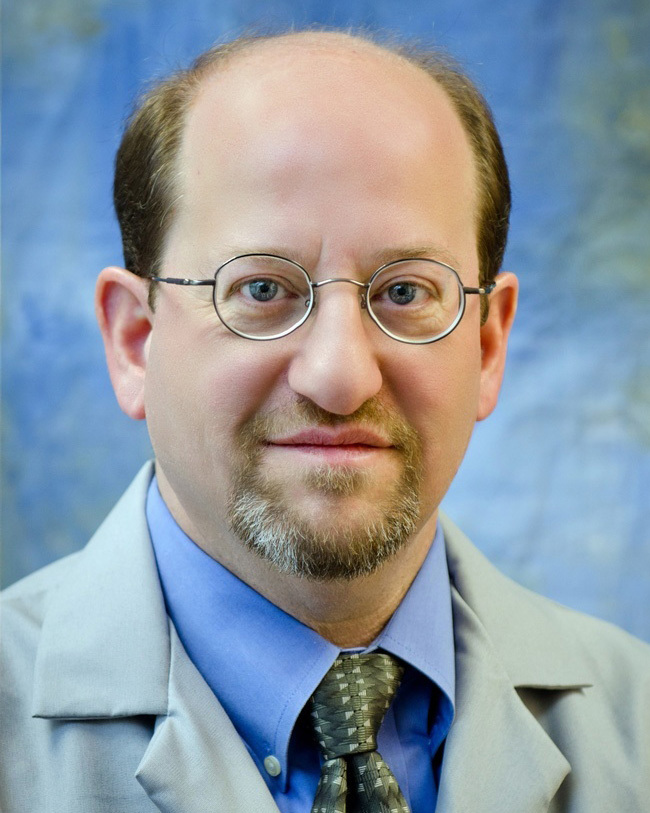
Steven E. Aks, DO, FACMT (Moderator)
Toxicology Director and Professor of Emergency Medicine
Rush Medical College
Dr. Steven Aks graduated from the New York Institute of Technology College of Osteopathic Medicine in 1987. He works in Chicago, IL and 4 other locations and specializes in Public Health & General Preventive Medicine, Emergency Medicine and Medical Toxicology. Dr. Aks is affiliated with John H Stroger Jr Hospital Of Cook County.
-
Register
- Member - Tier I - Free!
- Member - Tier II - Free!
- Member - Tier III - Free!
- Member - Tier IV - Free!
- More Information
-
Register
-
Contains 5 Component(s), Includes Credits Includes a Live Web Event on 11/08/2024 at 8:50 AM (EST)CE Credit available
Opioids, Withdrawal, Recreational Drugs, Opioids, Drug psychoses, Chemical Burns, Decon, Carbon Monoxide, Cyanides and more!
#TotalTox2024
Join us for the next live, virtual session of the Total Tox Course, Substance Use Disorder & Emergency Preparedness.
The first half of this session will cover substance use topics like opioid addiction, cannabis toxicity, and new substances. Experts will also discuss drug screen issues, pulmonary irritants, and the effects of mitochondrial asphyxiants on first responders to chemical suicides. The session will conclude with a focus on disaster preparedness, including radiation types and symptom management, nerve agents, and a brief history of bioterrorism and identification of agents. Interactive case panels with expert speakers will focus on substance use disorder and disaster preparedness.
Learner Objectives
After attending the event, participants should be able to:
- Discuss psychoactive substances as well as the diagnosis and treatment approaches for substance use disorders.
- Describe medication-assisted treatments for opioid use disorder, focusing on buprenorphine, methadone, and naltrexone.
- Explain medical management principles for CBRNE and other hazmat situations
Questions?
Please write to ACMT at events@acmt.net
Preliminary Agenda | Session 2 - November 8, 2024
8:50 - 9:00 AM ET | Opening Remarks
9:00 - 9:45 AM ET
The New Dangers of Opioid Addiction
Lewis Nelson, MD, FACEP Chair of Emergency Medicine, Rutgers New Jersey Medical School, Newark, NJDr. Nelson will describe opioid use disorder and explain how to initiate treatment for opioid use disorders. He will also highlight harm reduction efforts that can reduce the adverse consequences of opioid use.
9:45 - 10:15 AM ET
Management Options for Opioid Use Disorder
Rachel Wightman, MD, FACMT Assistant Professor of Emergency Medicine, The Warren Alpert Medical School of Brown University, Providence, RIDr. Wightman will review the misuse, abuse, & criteria for diagnosing opioid use disorder. She will identify psychosocial treatments for opioid use disorder and describe the medication-assisted treatments for Buprenorphine, Methadone, and Naltrexone.
10:15 - 10:45 AM ET
Cannabis & Cannabis Toxicity
Mark Neavyn, MD, FACMT Medical Director & Emergency Medicine Physician, Northern New England Poison Center & Maine Medical Center, Portland, MEDr. Neavyn will examine the symptoms of cannabis toxicity and describe the treatment approach to cannabis toxicity.
10:45 - 11:00 AM ET | Break (15 min)
11:00 - 11:15 AM ET
What's New in Your Neighborhood?
Stephanie Weiss, MD, PhD Staff Clinician, Translational Addiction Medicine Branch, National Institute on Drug Abuse, Baltimore, MDDr. Weiss will discuss the epidemiology of new fentalogues and explain how to initiate treatment for fentanyl-related overdose.
11:15 - 12:00 PM ET
Case ReviewSeveral speakers from previous lectures return to review clinical cases
12:00 - 12:30 PM ET
Drug Screen Pitfalls
Paul M. Wax, MD, FACMT Executive Director, American College of Medical Toxicology (ACMT), Phoenix, AZDr. Wax will Identify toxicology tests available in the ED. He will discuss which tests should be requested in specific situations and describe how test ordering changes treatment outcomes.
12:30 - 1:00 PM ET | Break (30 min)
1:00 - 1:45 PM ET
Pulmonary Irritants & Simple Asphyxiants
Charles McKay, MD, FACMT Associate Medical Director, CT Poison Control Center, University of Connecticut School of Medicine, Farmington, CTDr. McKay will discuss the role of water solubility in the clinical presentation of pulmonary irritants and describe the clinical presentation of pulmonary irritants.
1:45 - 2:15 PM ET
Chemical Suicide & Mitochondrial Asphyxiants
Paul M. Wax, MD, FACMT Executive Director, American College of Medical Toxicology (ACMT), Phoenix, AZDr. Wax will return to examine the sources and uses of chemical asphyxiants, their basic mechanisms of toxicity, and their clinical presentations. He will identify the differences between simple asphyxiants and chemical asphyxiants and compare therapies used to treat asphyxiant poisoning.
2:15 - 2:45 PM ET
Carbon Monoxide Poisoning: High Flow Oxygen or the Hyperbaric Chamber
Kelly Johnson-Arbor, MD, FACEP, FUHM, FACMT Medical Director, National Capital Poison Center & MedStar Georgetown University Hospital, Washington, DCDr. Johnson-Arbor will identify different types of radiation, describe the consequences of exposure to radiation, and discuss the diagnosis and management of radiation casualties and radiation mass casualty events.
2:45 - 3:15 PM ET
Disaster Preparedness #1: Radiation Events
Joseph K. Maddry, Lt Col, USAF, MC, FS, MD, FACMT Deputy Commander, Department of Emergency Medicine, US Army Institute of Surgical Research, Houston, TXDr. Maddry will discuss the diagnosis and management of radiation casualties and radiation mass casualty events. He will also identify different types of radiation and describe the consequences of exposure to radiation.
3:15 - 3:30 PM ET | Break (15 min)
3:30 - 4:00 PM ET
Disaster Preparedness #2: Organophosphates & New Agents
Christina Hantsch, MD, FACEP, FACMT, FAACT Emergency Physician and Medical Toxicologist, Loyola University Chicago Stritch School of Medicine Maywood, ILDr. Hantsch will discuss management options for patients with organophosphate insecticide or nerve agent toxicity and explain cholinergic toxidrome. She will list specific organophosphate insecticides and chemical weapon nerve agents.
4:00 - 4:45 PM ET
Disaster Preparedness #3: Other Chemical & Biological Terrorism
Aaron Frey, DO Emergency Medicine Attending Physician and Medical Toxicology Fellow, Richmond Emergency Physicians, Inc. & University of Virginia, Richmond, VADr. Frey will examine the diagnosis and management of casualties resulting from terrorism and mass casualty events and discuss the history of bioterrorism as a tool for warfare. He will explain and evaluate the agents used in bioterrorist events.
4:45 - 5:30 PM ET
Case ReviewSeveral speakers from previous lectures return to review clinical cases.
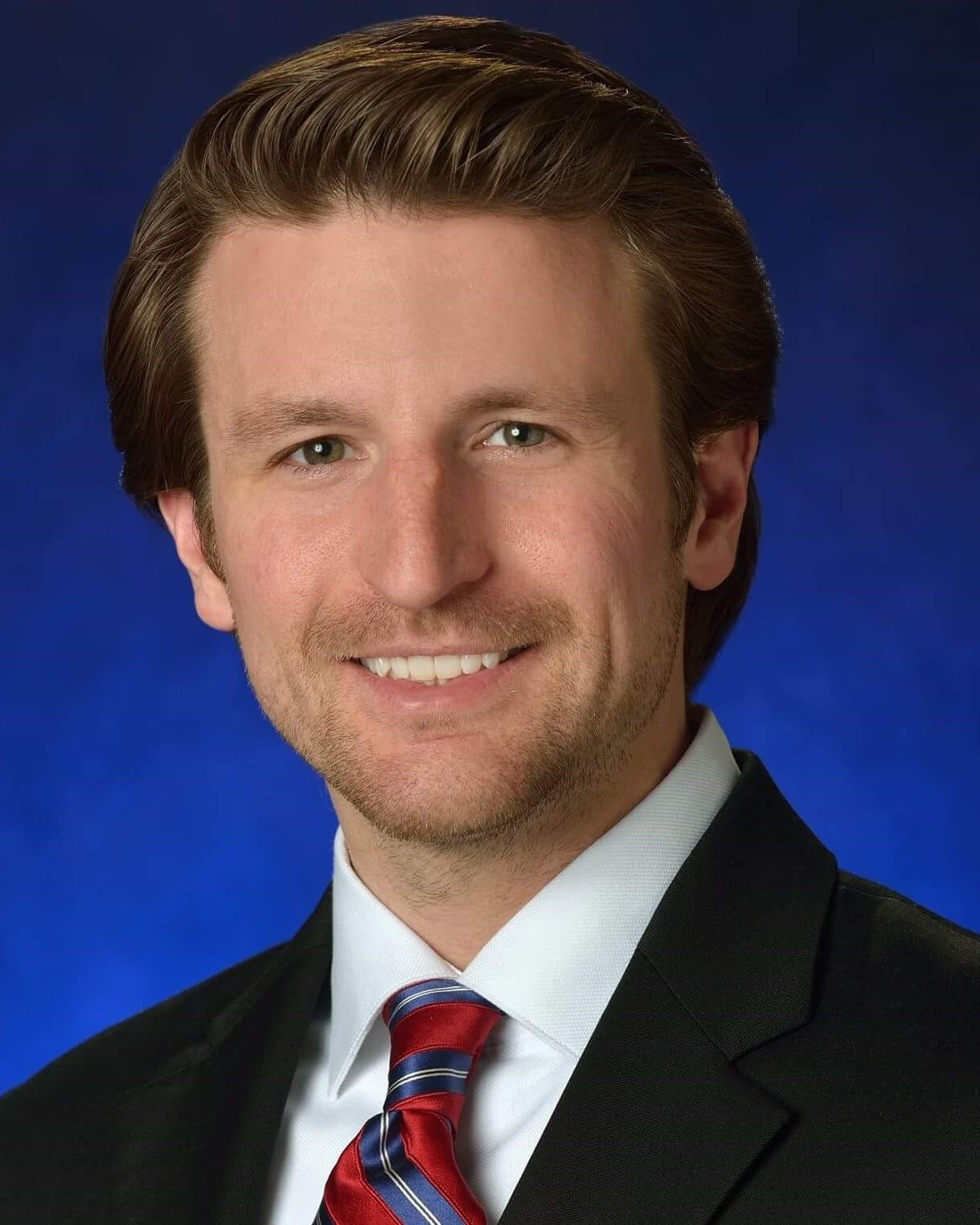
Aaron Frey, DO
Core Faculty & Medical Toxicologist
WellSpan Health at York Hospital
Dr Aaron Frey is an emergency medicine physician and medical toxicologist. He studied government and international studies at Campbell University in North Carolina and Spanish at Middlebury College in Vermont. He worked as a firefighter, emergency medical technician, and search and rescue diver during his undergraduate career. The experiences he had in those roles are what influenced him to become a physician. His particular interests include hazardous materials and chemical, biological, radiological, and nuclear (CBRN) weapons, remote, austere, and wilderness medicine, and damage control resuscitation. He currently practices emergency medicine and toxicology at the Wellspan York Hospital in York, PA and holds an academic appointment of assistant professor of emergency medicine and medical toxicology at Drexel University College of Medicine.
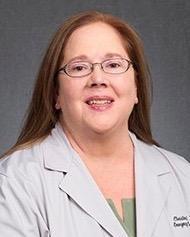
Christina Hantsch, MD, FACEP, FAACT, FACMT
Emergency Physician and Medical Toxicologist
Dr. Hantsch is a graduate of the Honors Program in Medical Education at Northwestern University. She completed an emergency medicine residency, including a year as chief resident, at the Medical College of Wisconsin and then continued her training in a medical toxicology fellowship at Vanderbilt University. After her fellowship, she spent nearly 22 years at Loyola University Chicago Stritch School of Medicine and Loyola University Medical Center. There, she established an inpatient toxicology clinical service and clinical rotations for graduate medical trainees and students in multiple fields. With an interest in medication management and safety, she joined the hospital Pharmacy and Therapeutics Committee, serving as member for 6 years before being appointed chair and leading the committee for another 6 years. Dr. Hantsch earned the academic rank of Professor of Emergency Medicine, was Director of the Division of Toxicology, and Director of Academic Affairs in the Department of Emergency Medicine. As a clinical faculty member, she was appointed to the Stritch Committee on Academic Rank and Tenure, serving for 7 years including 2 as a subcommittee chair leading revision of the clinician educator track guidelines. In 2018, she was the founding Program Director of the Loyola emergency medicine residency. Dr. Hantsch served for more than 8 years as Medical Director of the Illinois Poison Center. In addition, she is a regular organizer and contributor to many local, regional, and national/international continuing education programs. After leaving academics, she worked for the U.S. FDA in pharmacovigilance for a year. As of 2022, she is board certified in addiction medicine in addition to emergency medicine and medical toxicology. Dr. Hantsch was elected to the ACMT Board of Directors in 2021, is a member of the Education Committee, and chair of the Practice Committee.
Robert Hendrickson, MD
Professor of Emergency Medicine, Medical Director, Program Director
Oregon Health and Science University, Oregon Poison Center, OHSU Fellowship in Medical Toxicology
Dr. Hendrickson graduated from the State University of New York, Downstate College of Medicine, and completed training in Emergency Medicine and Medical Toxicology at the Medical College of Pennsylvania. He is a Professor of Emergency Medicine at Oregon Health and Sciences University where he is Chief of the Section of Medical Toxicology, Program Director for the fellowship in medical toxicology, and the Medical Director of the Oregon Poison Center.
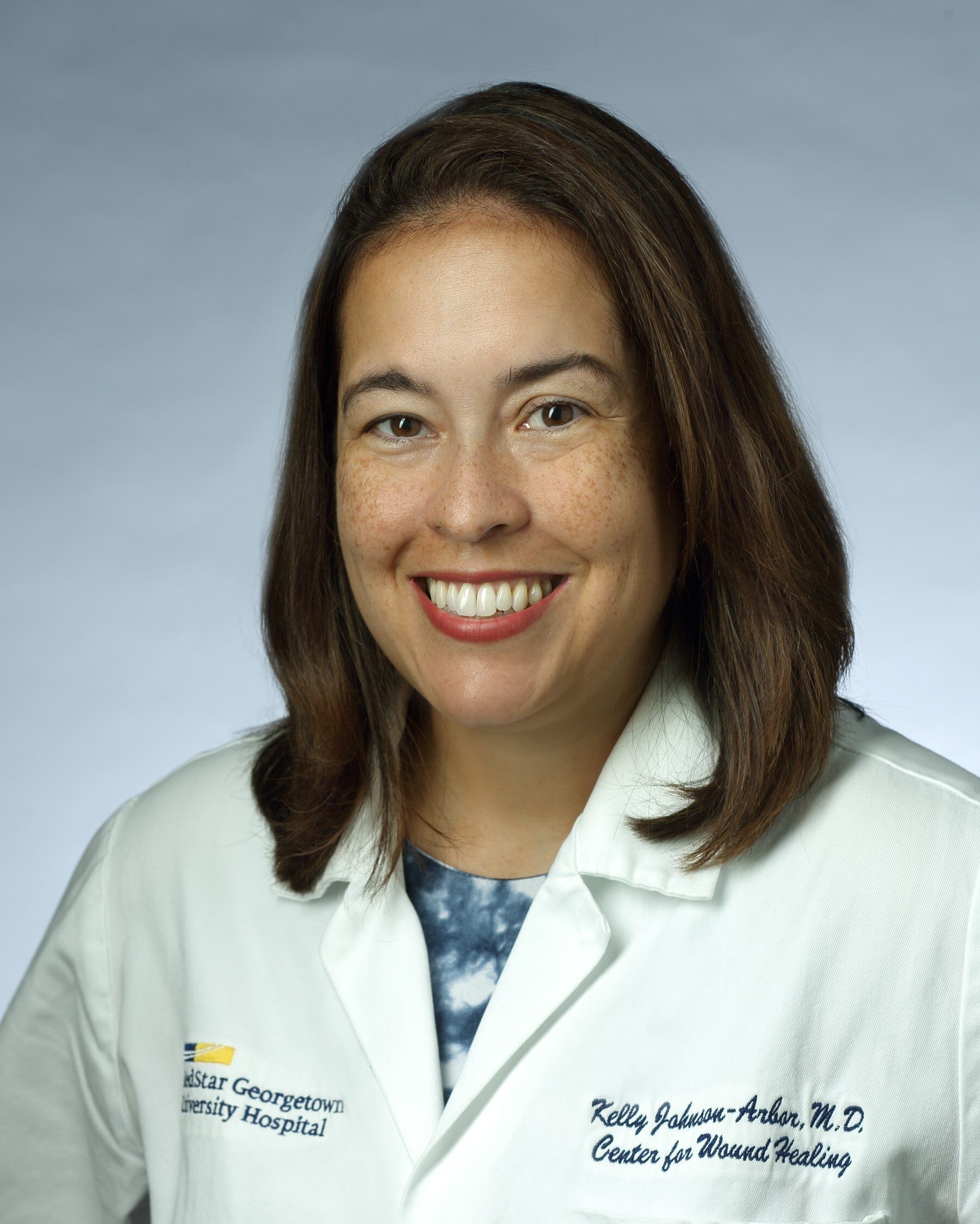
Kelly Johnson-Arbor, MD, FACEP, FUHM, FACMT
Medical Director
National Capital Poison Center & MedStar Georgetown University Hospital
Dr. Kelly Johnson-Arbor is a physician who is triple board-certified in Emergency Medicine, Medical Toxicology, and Undersea and Hyperbaric Medicine. She completed her undergraduate education at Harvard College and earned her medical degree from Loyola University Stritch School of Medicine. She completed a residency in Emergency Medicine at the University of Rochester, followed by a fellowship in Medical Toxicology at the University of Connecticut. She currently serves as the co-medical director of National Capital Poison Center and the medical director of hyperbaric medicine at MedStar Georgetown University Hospital. She is an Assistant Professor of Plastic Surgery and Emergency Medicine at the Georgetown University School of Medicine and serves as an associate faculty member of the MedStar Institute for Quality and Safety.
Dr. Johnson-Arbor has been in practice as a medical toxicology physician for more than 15 years. She has extensive experience in the diagnosis, treatment, and prevention of various types of toxic exposures affecting both adults and children. She has served as a toxicology consultant for multiple Poison Control Centers in the United States, and currently treats toxicology patients at MedStar Georgetown University Hospital. She has a special interest in the management of heavy metal toxicity and carbon monoxide poisoning. An avid researcher and writer, Dr. Johnson-Arbor has published numerous articles in peer-reviewed medical journals including New England Journal of Medicine, JAMA Internal Medicine, and Annals of Emergency Medicine. She enjoys teaching toxicology principles to the public as well as medical professionals.
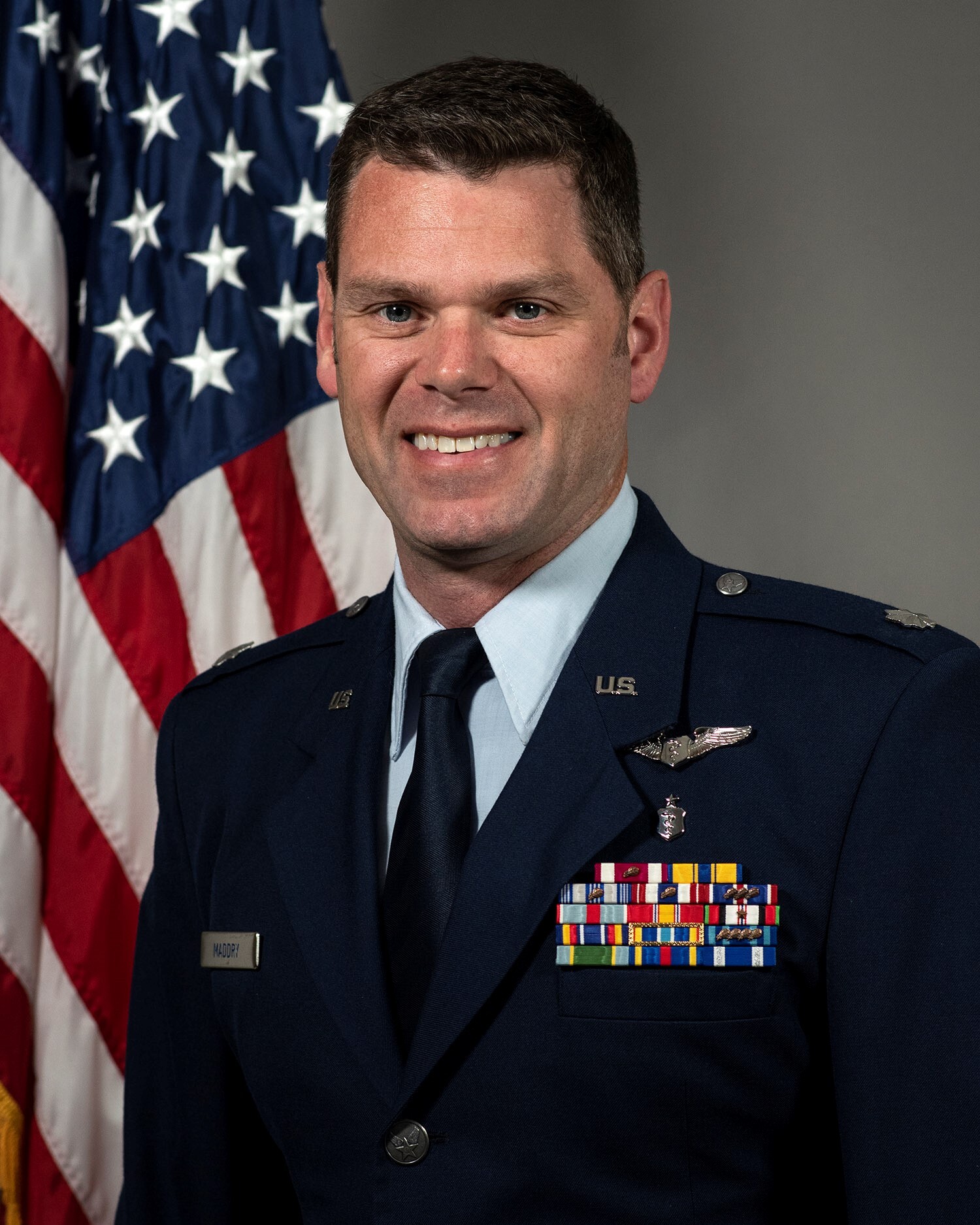
Joseph K. Maddry, Lt Col, USAF, MC, FS, MD, FACMT
Deputy Commander
Department of Emergency Medicine, US Army Institute of Surgical Research
Lt Col Maddry earned his Bachelor’s Degree from the US Air Force Academy in 2001 as a Distinguished Graduate. His first assignment was as Officer in Charge of Bioenvironmental Engineering at Minot Air Force Base, North Dakota. During his tenure, he led his unit’s response to the largest anhydrous ammonia spill in U.S. history. He then attended medical school at the Uniformed Services University, earning Alpha Omega Alpha membership honors. He completed his emergency medicine residency at SAUSHEC and his medical toxicology fellowship at the Rocky Mountain Poison and Drug Center in Denver, Colorado.
Following fellowship, Lt Col Maddry returned to Brooke Army Medical Center as an emergency physician and medical toxicologist. He served as Chief of the BAMC Simulation Center from 2014 to 2015. Subsequently, he served as Director of the US Air Force En route Care Research Center (ECRC) from 2015 to 2020. In this position, he oversaw 20 personnel and a $14.8 million research portfolio. He is an author of over 100 peer reviewed publications and 150 research presentations and has been awarded over $28 million in research grants. The Society of Academic Emergency Medicine recognized Dr. Maddry’s research as one of the best publications of 2014. Lt Col Maddry was awarded the Defense Health Board Early Career Investigator Award, the 2017 USAF Outstanding Achievement in Clinical Research award and the 2018 Military Health System Research Symposium Small Team Research Accomplishment Award for Excellence.
Lt Col Joseph Maddry is currently the Deputy Commander of the US Army Institute of Surgical Research, overseeing over 700 personnel focused on optimizing combat casualty care. Dr. Maddry also serves as Director of Medical Toxicology at Brooke Army Medical Center and as the Director of the Clinical Resuscitation, Emergency Sciences, Toxicology, and Triage (CREST2) Research Program. He leads the development of the next generation of military researchers by serving as the Director of the SAUSHEC Military Emergency Medicine Research Fellowship and as Director of the Clinician Scientist Investigator Opportunity Network (CSION).
He is an Associate Professor of Emergency Medicine with the Uniformed Services University and has academic appointments at the University of Texas Health, Texas A&M, and the University of Colorado Denver. Lt Col Maddry has served in Afghanistan, Iraq, Haiti, Japan and Burkina Faso.
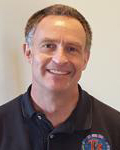
Charles McKay, MD, FACMT
Associate Medical Director
CT Poison Control Center, University of Connecticut School of Medicine
Dr. McKay was trained in Anatomic and Surgical Pathology, Internal Medicine, Emergency Medicine, Medical Toxicology and was a Medical Director of Occupational Health and Medical Review Officer for a hospital system during more than 30 years of clinical practice, during which he provided toxicology consultation at 3 hospitals, directed a medical toxicology fellowship training program, and provided medical oversight of a regional poison control center. He provides medical legal consultation across the country on toxicology-related issues, and has testified in nearly 100 cases, many related to questions of alcohol- and -drug-induced impairment.

Howard McKinney, PharmD, DABAT, FAACT
Secretary-Treasurer
American Board of Applied Toxicology & North American Society of Toxinology
Dr McKinney graduated in 1971 from the University of California San Diego, Revelle College with a Bachelor of Arts degree (BA), Biology major, Spanish Literature minor.
In 1978 he graduated from UCSF School of Pharmacy with a Doctor of Pharmacy degree (PharmD), and was recruited to be a founding staff member of the San Francisco Poison Center, where he worked until 1992.
In 1992 he passed the Boards to become a Diplomate of the American Board of Applied Toxicology DABAT), and was hired as a Clinical Pharmacist in Critical Care at Univ Calif Davis Medical Center in Sacramento California (UCDMC).
In 2018 he was approved as a Fellow of the American Academy of Clinical Toxicology (FAACT), and retired from UCDMC. He continues his work as Secretary-Treasurer of ABAT and NAST (North American Society of Toxincology), as well as his love of herpetology, hiking, photography, videography and music.
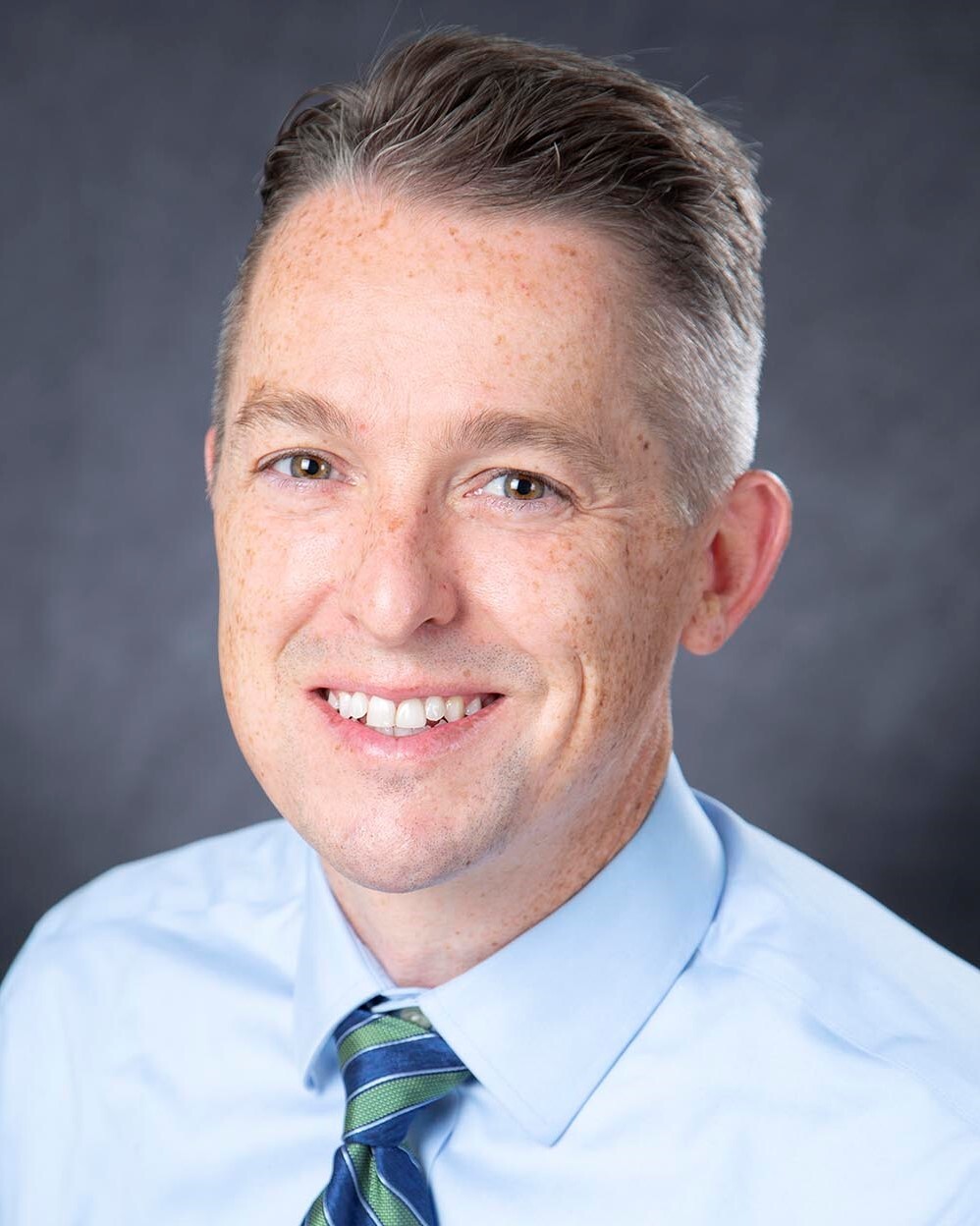
Mark Neavyn, MD, FACMT
Medical Director & Emergency Medicine Physician
Northern New England Poison Center & Maine Medical Center
Mark Neavyn, M.D. joined Maine Medical Center as the Medical Director for the Northern New England Poison Center in 2020. After earning his Bachelor of Arts degree in biology from Augustana College, he went on to earn his medical degree at Jefferson Medical College. He then completed his residency in emergency medicine at Drexel University, followed by a fellowship in Medical Toxicology at the University of Massachusetts.
His clinical interests include treatment and stabilization of patients after poisoning, drug overdose, and environmental exposures. He is particularly interested in the public health implications of cannabis use and emerging trends in novel psychoactive substances.
In his spare time Dr. Neavyn enjoys running on the beautiful trails in and around Portland, Maine.
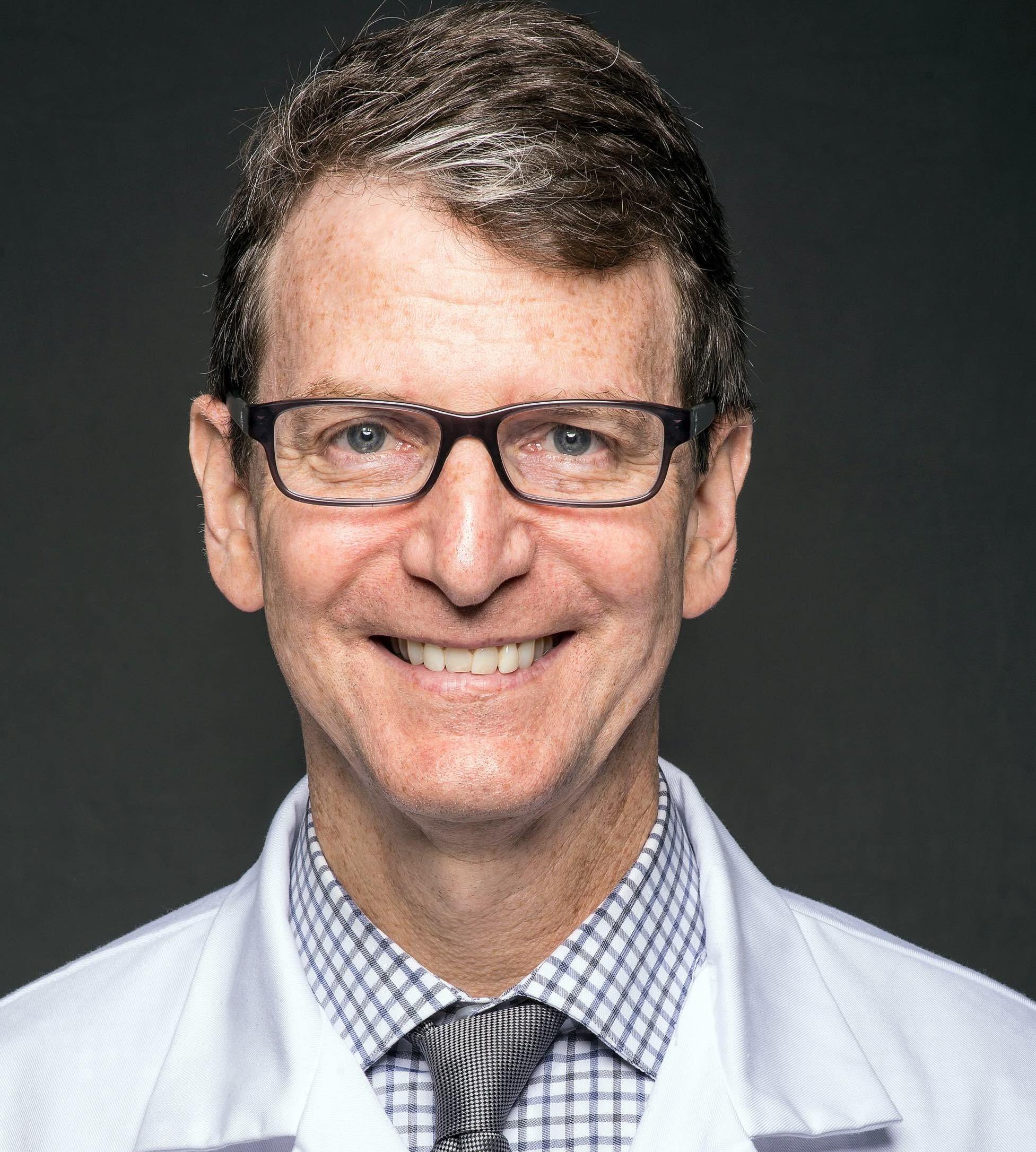
Moderator: Lewis Nelson, MD, MBA, FACMT, FASAM
Chair of Emergency Medicine
Rutgers New Jersey Medical School
Lewis S. Nelson, MD is Professor and Chair of the Department of Emergency Medicine at Rutgers New Jersey Medical School, Chief of Service for the Emergency Department at University Hospital of Newark, and Senior Consultant to the New Jersey Poison Information & Education System. Dr. Nelson is board certified in emergency medicine, medical toxicology, and addiction medicine. His areas of specific interest include preventing and managing the consequences of opioid and other substance use, multimodal pain management strategies, health policy, and medication safety.
Dr. Nelson has served as President of American College of Medical Toxicology and on the Board of Directors of both the American Board of Emergency Medicine and the Accreditation Council for Continuing Medical Education. He is currently the president of Association of Academic Chairs in Emergency Medicine. He is a long time consultant for several governmental agencies including the Centers for Disease Control and Prevention, the Department of Homeland Security, and the Food and Drug Administration. He is an editor of the textbook “Goldfrank’s Toxicologic Emergencies.
Paul M. Wax, MD, FACMT
Executive Director
American College of Medical Toxicology (ACMT)
Dr. Wax is the Executive Director of the American College of Medical Toxicology. He received his B.A from Dartmouth College, his M.D. from the Mount Sinai School of Medicine, his Emergency Medicine training at the UCLA Hospitals, and his Medical Toxicology training at Bellevue Medicine Center / New York University. He is Board-certified in both Medical Toxicology and Emergency Medicine, and is a Fellow of the American College of Medical Toxicology.
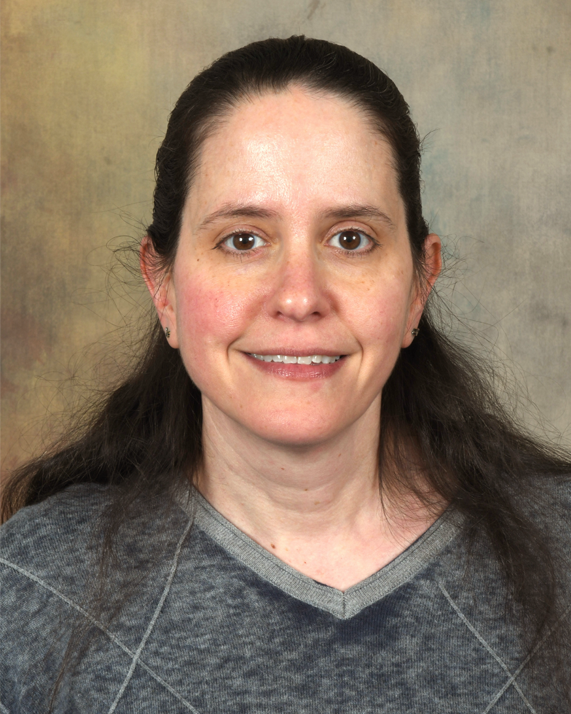
Stephanie Weiss, MD, PhD
Staff Clinician, Translational Addiction Medicine Branch
National Institute on Drug Abuse
Dr. Stephanie Weiss is the Staff Research Physician serving the Translational Addiction Medicine Branch of the National Institute on Drug Abuse’s Intramural Research Program. After earning a Ph.D. in pharmaceutical chemistry, Dr. Weiss received her medical degree in 2011. She is board certified in emergency medicine, addiction medicine, and medical toxicology and was selected to participate in the Boston University Research in Addiction Medicine Scholars Program prior to joining NIDA. Dr. Weiss is responsible for providing optimal, safe, and ethical care to study participants and clinical support toward the TAMB mission conducting inpatient and outpatient proof-of-concept human laboratory studies. Her research interests include novel psychoactive substances, medication misuse, and improving interpretation of urine drug testing.
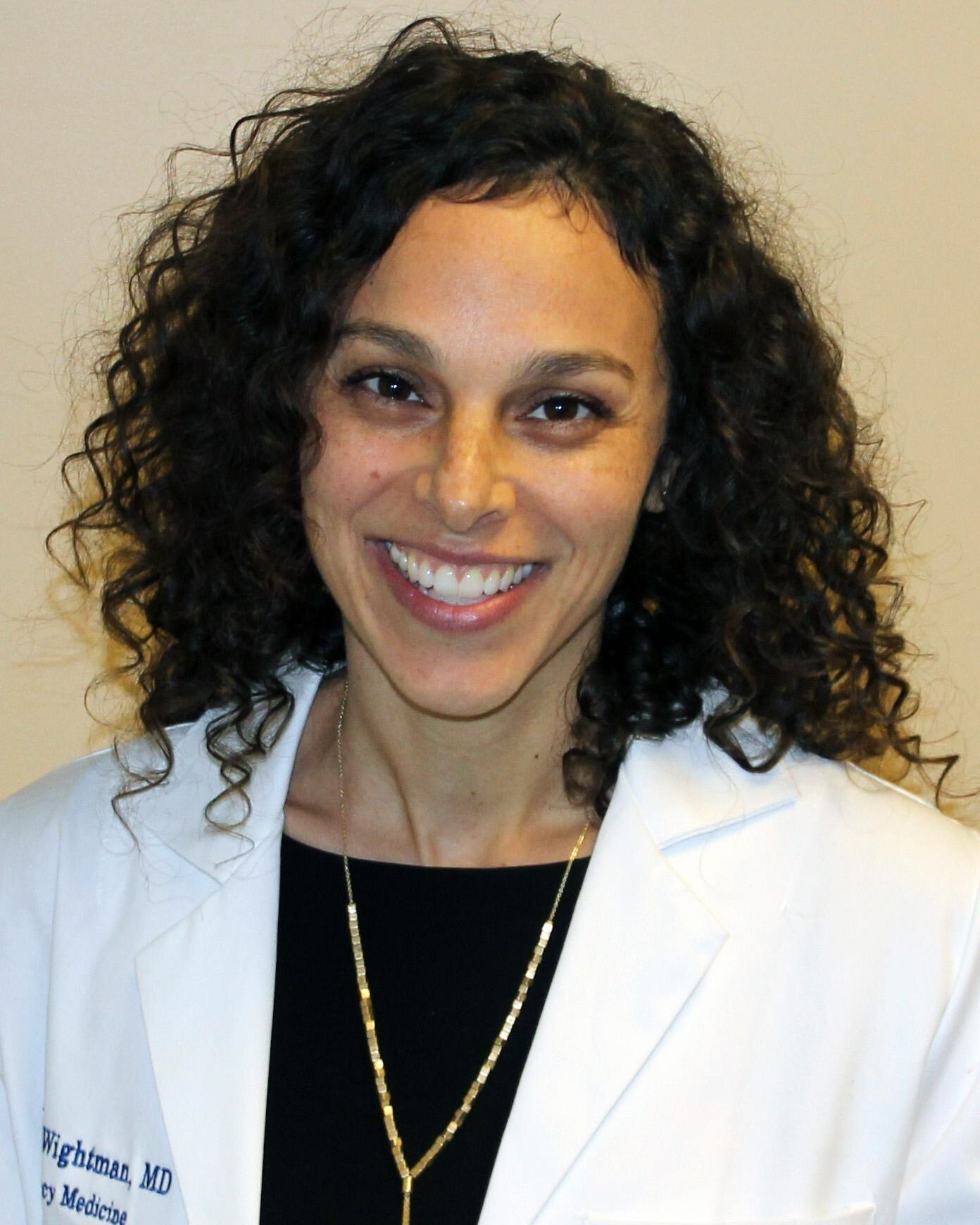
Rachel Wightman, MD, FACMT
Assistant Professor of Emergency Medicine
The Warren Alpert Medical School of Brown University
Dr. Wightman is an Assistant Professor of Emergency Medicine at Alpert Medical School of Brown University. She is a triple board-certified practicing physician in medical toxicology, addiction medicine, and emergency medicine. She serves as Director of Toxicology Education for Brown Emergency Medicine and as faculty in the Addiction Medicine Fellowship at Rhode Island Hospital. She completed medical toxicology fellowship and emergency medicine residency at New York University School of Medicine/ Bellevue Hospital Center.
Dr. Wightman’s primary clinical expertise is in the evaluation and management of drug toxicity syndromes in complex medical patients and enhancing medication safety for high-risk drugs. Her research is focused on evaluation and tracking of emerging drug trends, cannabis hyperemesis syndrome, and medications for treatment of opioid use disorder.
Registration Rates
Registration includes:
- Access to the live virtual event on November 8, 2024
- Access to the on-demand recording for 90 days after the event
- Access to the Speaker slides
- 8.0 Continuing Education Certificate. Available credits: Continuing Medical Education (CME), Continuing Nursing Education (CNE), Continuing Pharmacy Education (CPE), Continuing Medical Education for Physician Assistant (AAPA CME), and Continuing Education for Nurse Practitioners (AANP CE).
Are you a member of any of the following organizations? AAEM, AAENP, APAMT, APC, EAPCCT, SOT, MENATOX
You may be eligible for a registration discount! Please email us at events@acmt.net to find out more.Member Rates
Member Tier I: Full, Affiliate, International, Emeritus
$200
Member Tier II: Fellows
$200
Member Tier III: Residents, International - Developing Country
$125
Member IV: Medical Students
$75Non-Member Rates
Non-member Tier I: Physicians, Pharmacists, Lawyers, "Other"
$225
Non-member Tier II: Fellows, SPIs, Nurses, etc.
$225
Non-member Tier III: Educators & Emergency Responders
$150
Non-member IV: Residents & Students
$100
ACMT Membership
ACMT Members receive a discounted rate. Interested in becoming an ACMT Member? Contact our Membership Team at membership@acmt.net. Learn more at: www.acmt.net/membership
Package Rates
Sign up for the all three days of the 2024 ACMT Total Tox Course and save $100!
Refunds and Cancellations
- Cancellations made 15 days or more in advance of the event date will receive a full refund less a 8% processing fee.
- Cancellations made within 14 days of the event date will not receive a refund.
All cancellation requests must be made in writing and emailed to: events@acmt.net. No telephone cancellations will be accepted. A refund that results from a cancellation or change to your registration will be returned to the original payer and in the original method of payment.
Pending review, limited exceptions will be made based on need and circumstance (family emergency, for example) and must be submitted in writing to events@acmt.net. For these instances, the full registration fee, minus a 8% processing fee, will be refunded. Because each exception must undergo a review and approval process, we ask in advance for your patience.
Questions?
For any questions, please email us at events@acmt.net.
Instructions
Once you have completed your registration:
- Click on the Contents tab on the day of live event. This is where you will be able view the Zoom link for the course as well as all required components.
- Complete the Pre-Test. For best the best learning experience, please complete this before the live event on November 1, 2024.
- Watch live event. You can use the Zoom link in the Learning Center to leave and enter the webinar during event.
- Complete the Post-Test. These questions are based on content from the lectures to gauge your comprehension of the lectures. It requires a 80% to pass.
- Complete the Event CE Survey. If you are completing CE, this survey is required.
- Claim your CE certificate. Once you have claimed your CE credit, you will not be able to change your CE certificate.
Full credit can only be claimed after completion of all required components.
Hardware/Software Requirements
Computer or Other Internet-Enabled Device; Internet Connection; Browser.
Materials
None.
Prerequisites
None.
Format
This event is a live Webinar with CME, CNE, CPE, AAPA CME, and AANP CE.
Need Assistance or Have Questions?
For assistance logging in, accessing content, purchasing or completing Continuing Education credits, or for other questions, please contact us at events@acmt.net or visit our FAQ page.
If you are in need of accessible learning accommodations, please contact events@acmt.net for additional assistance.
Continuing Education

Continuing Education credit for this activity is provided by AKH Inc., Advancing Knowledge in Healthcare. The activity is pending approval, and registrants will be able to claim up 8.0 Continuing education credits.
Available Continuing Educations Credits:
- Continuing Pharmacist Education (CPE)
- Continuing Nursing Education (CNE)
- Continuing Medical Education (CME)
- Continuing Medical Education for Physician Assistant (AAPA CME)
- Continuing Education for Nurse Practitioners (AANP CE)
-
Register
- Non-member - Tier I - $225
- Non-member - Tier II - $225
- Non-member - Tier III - $150
- Non-member - Tier IV - $100
- Member - Tier I - $200
- Member - Tier II - $200
- Member - Tier III - $125
- Member - Tier IV - $75
- More Information


